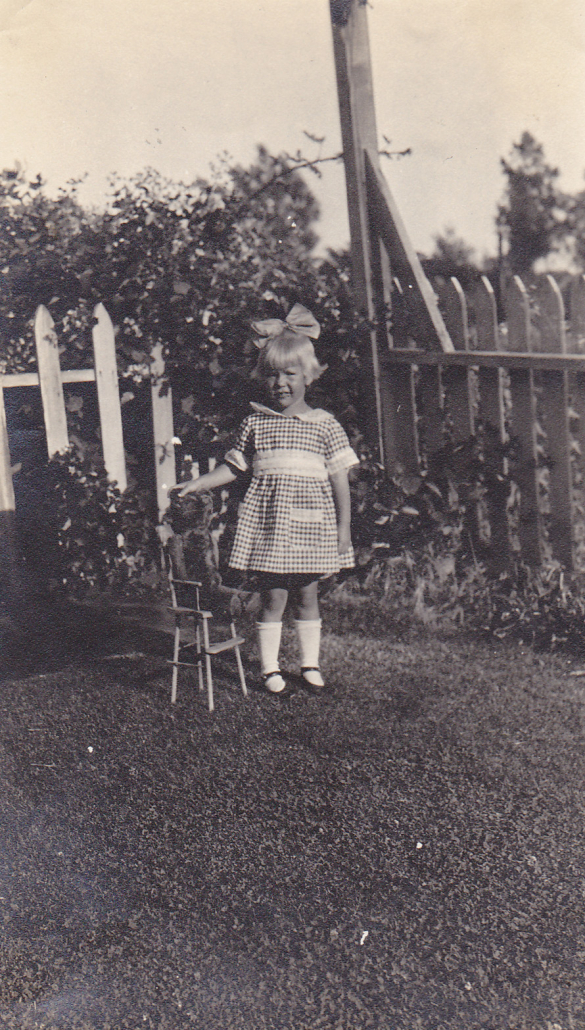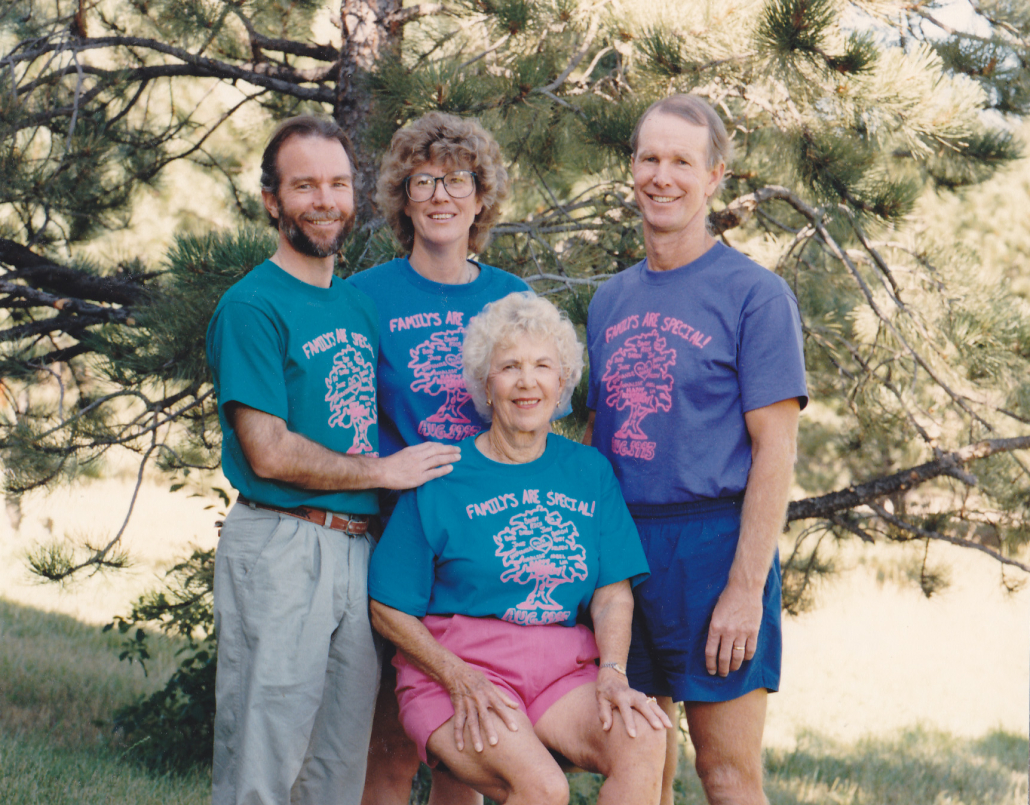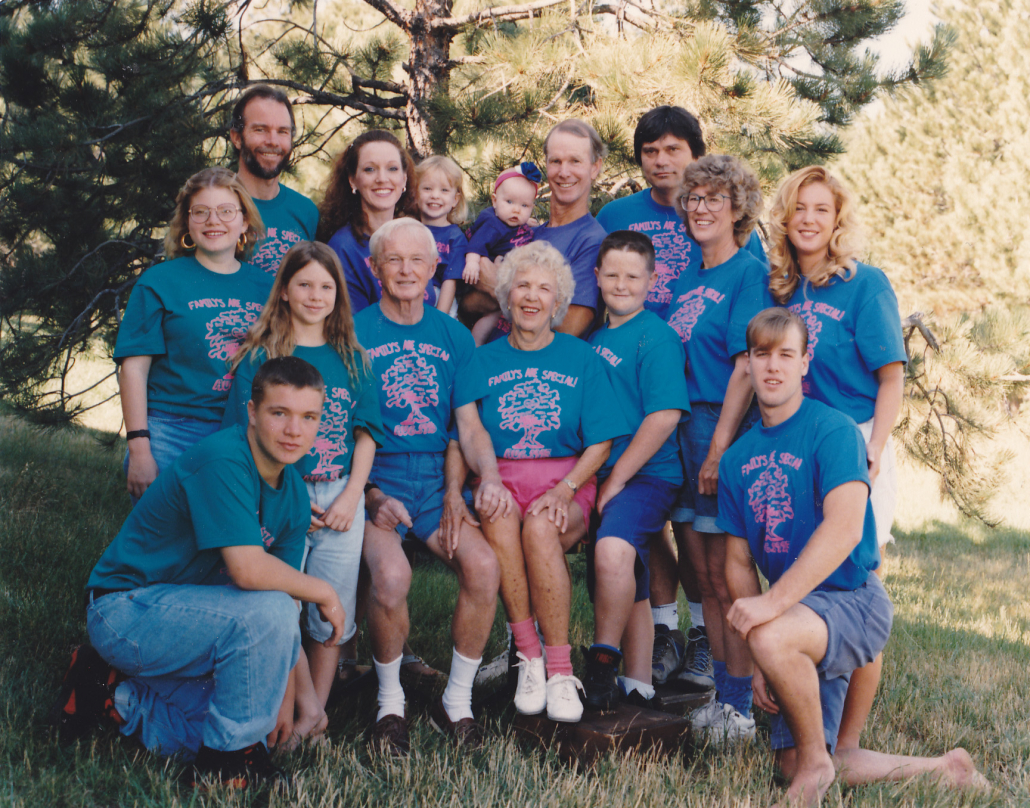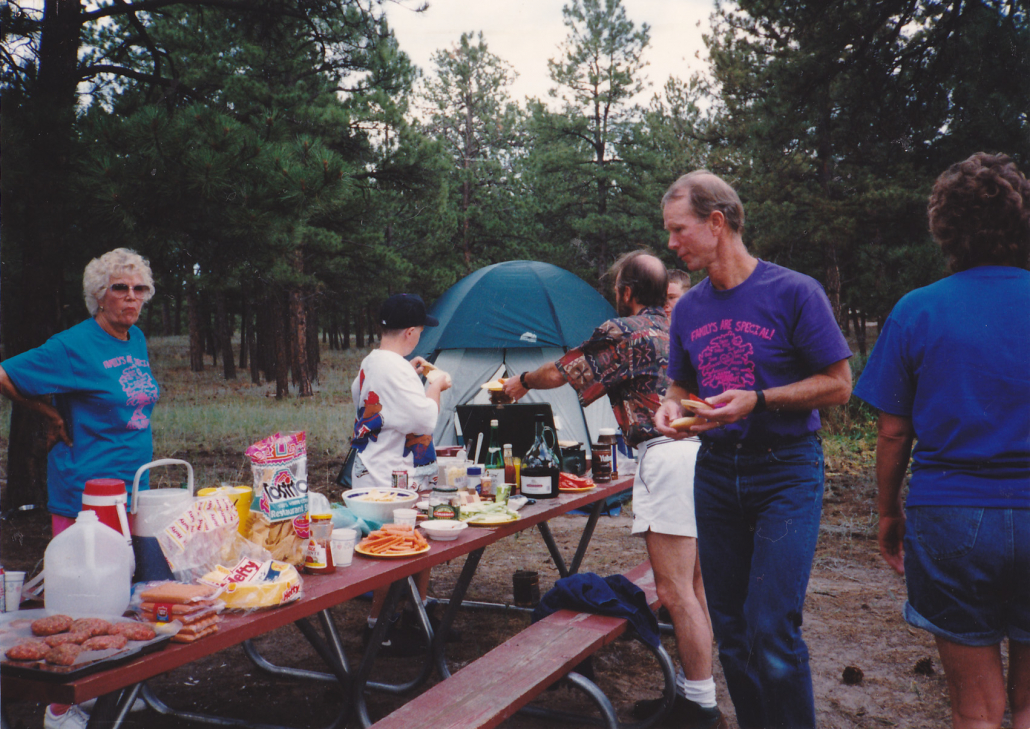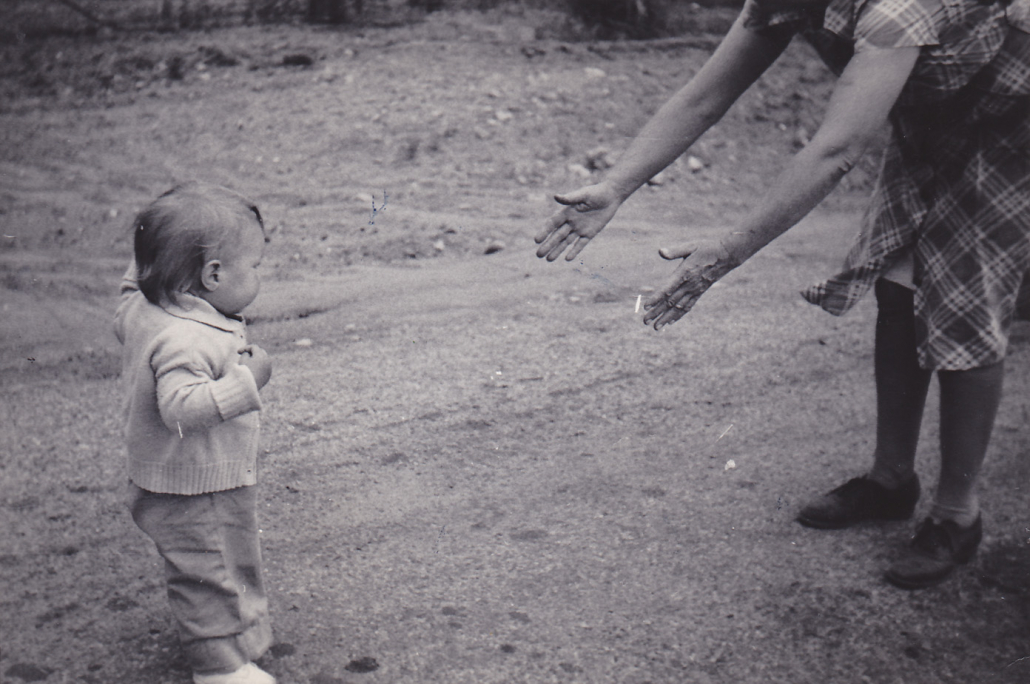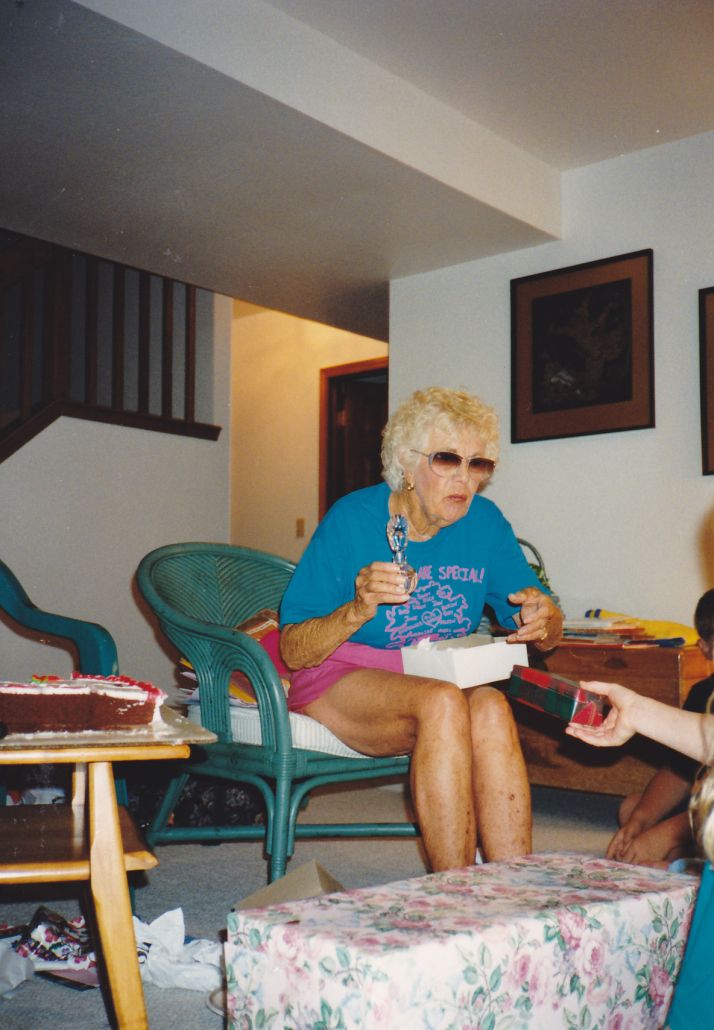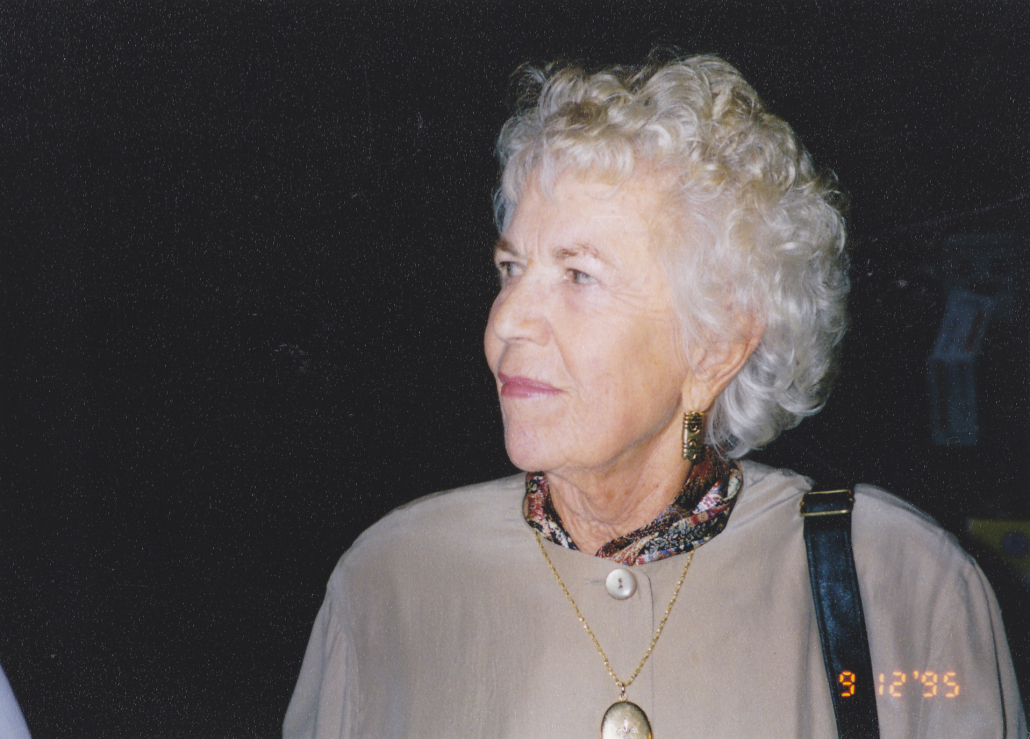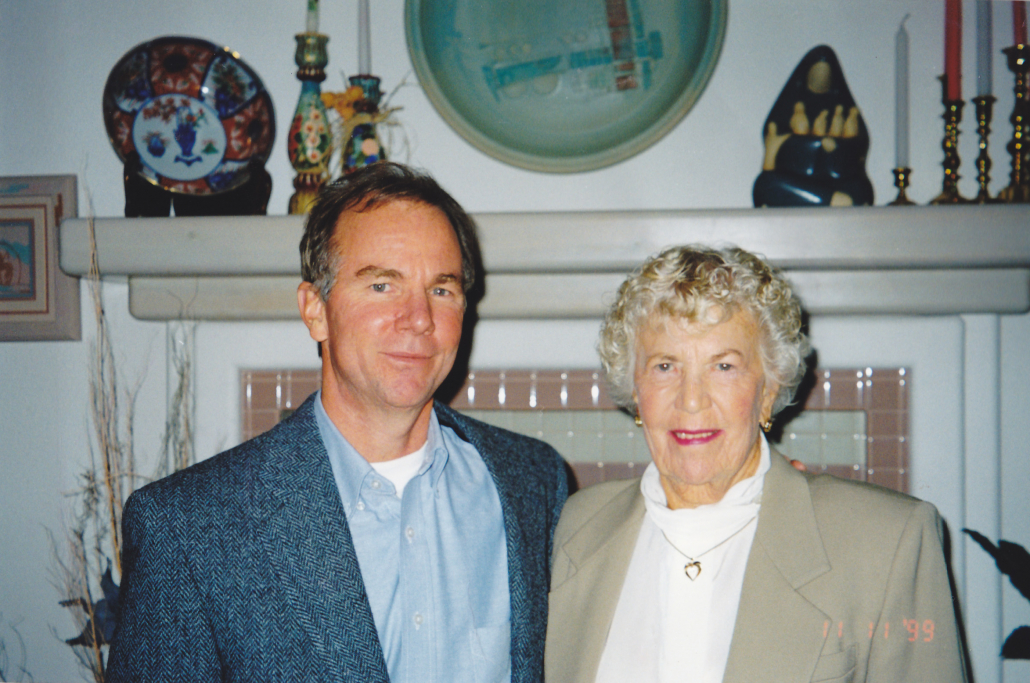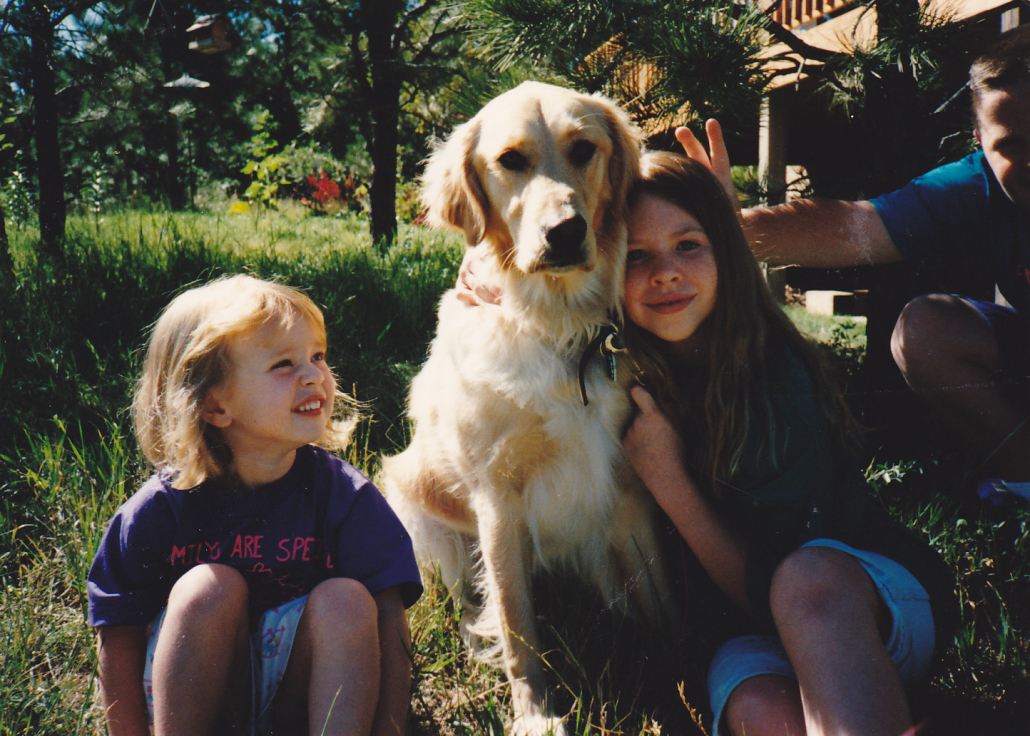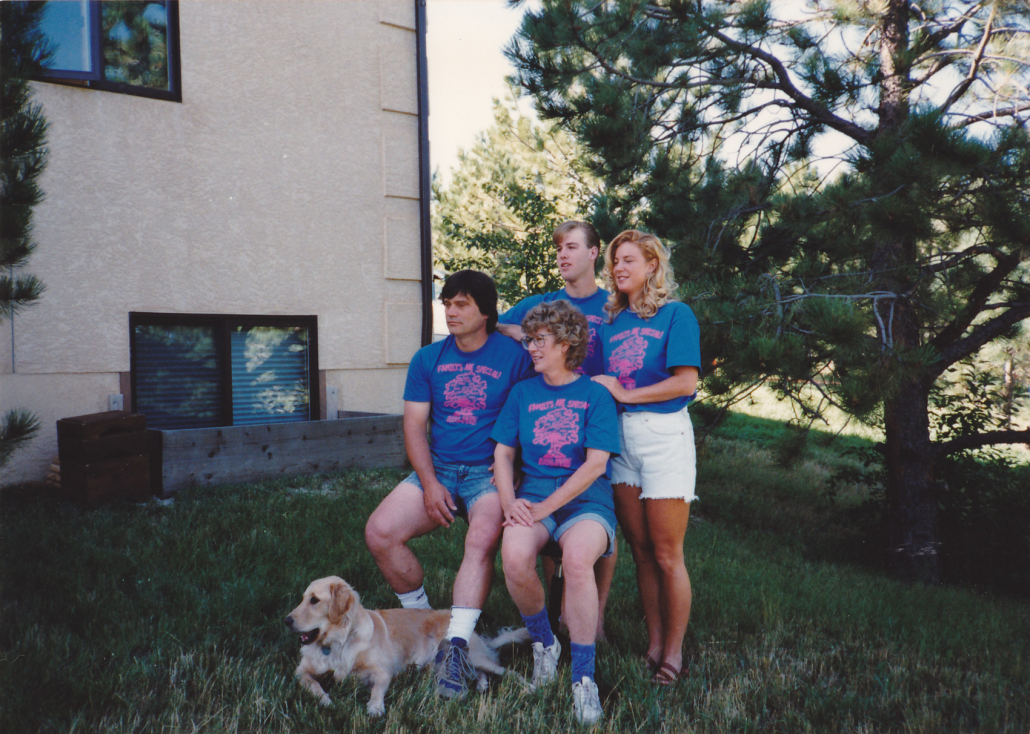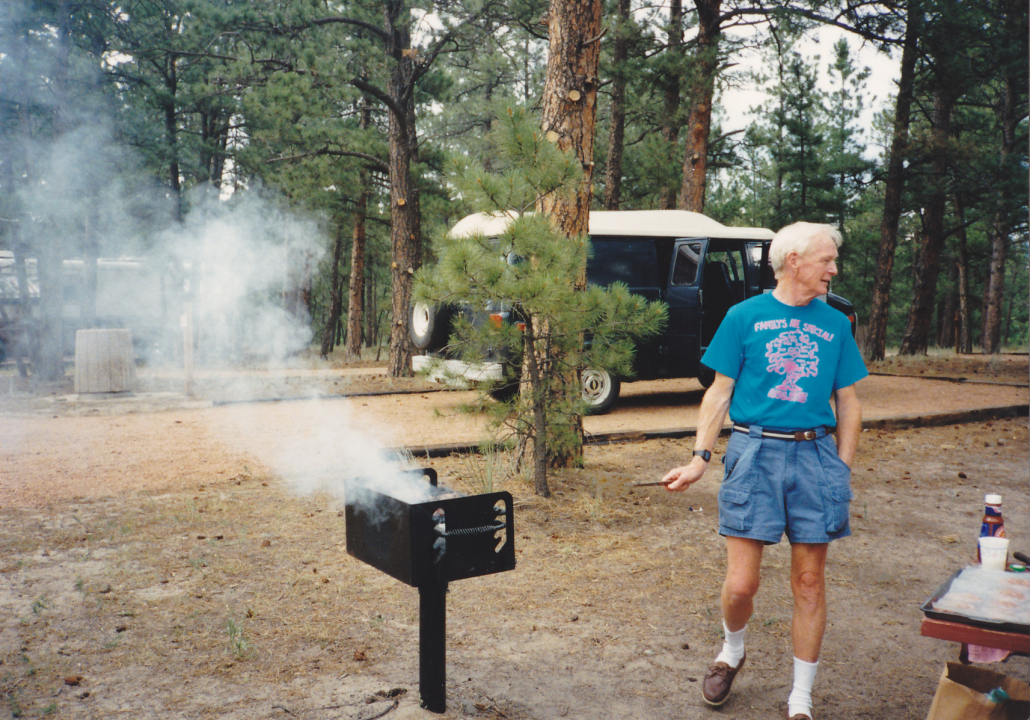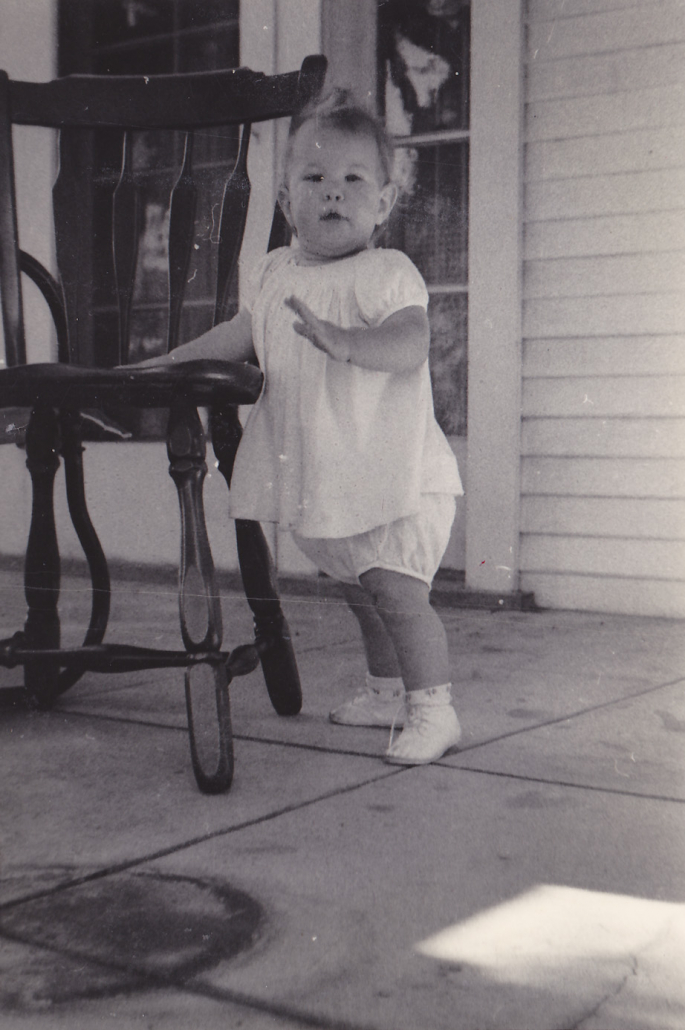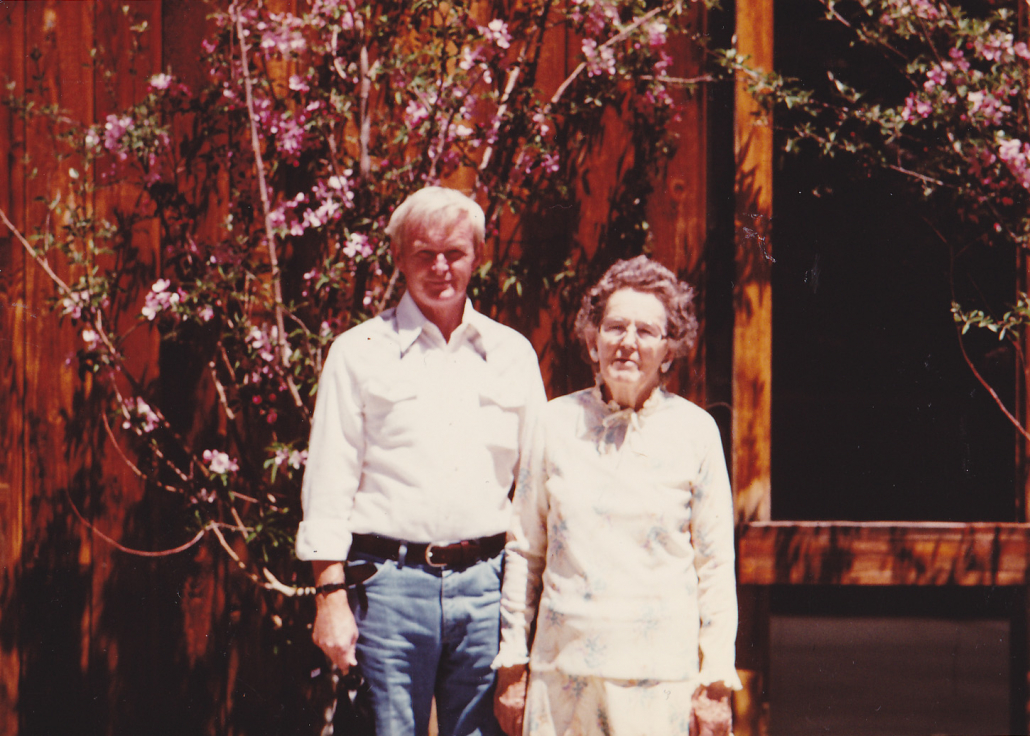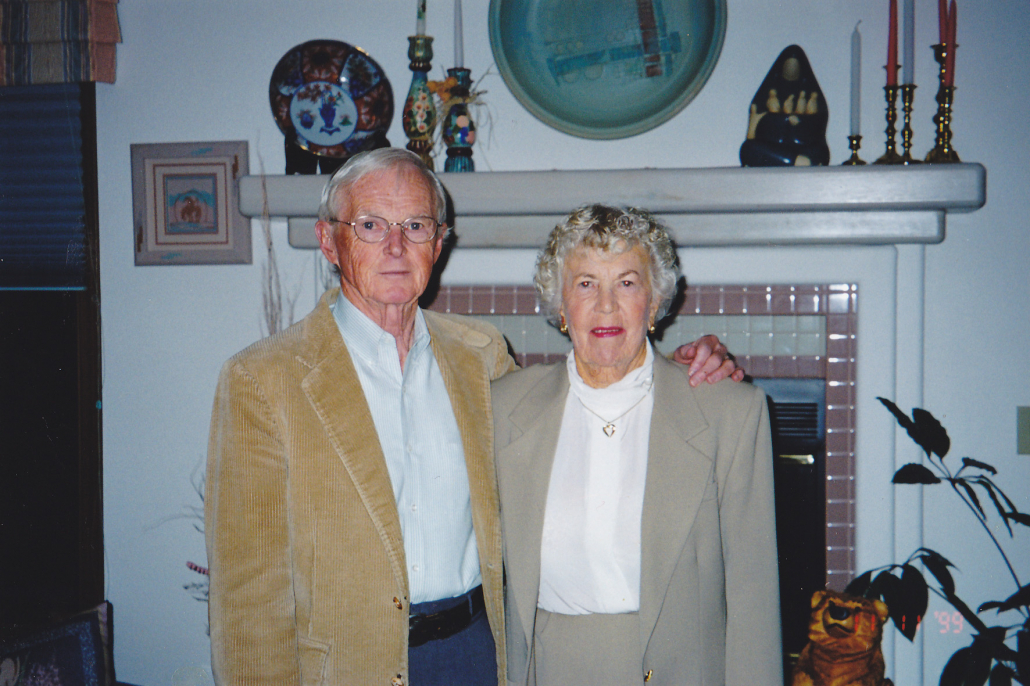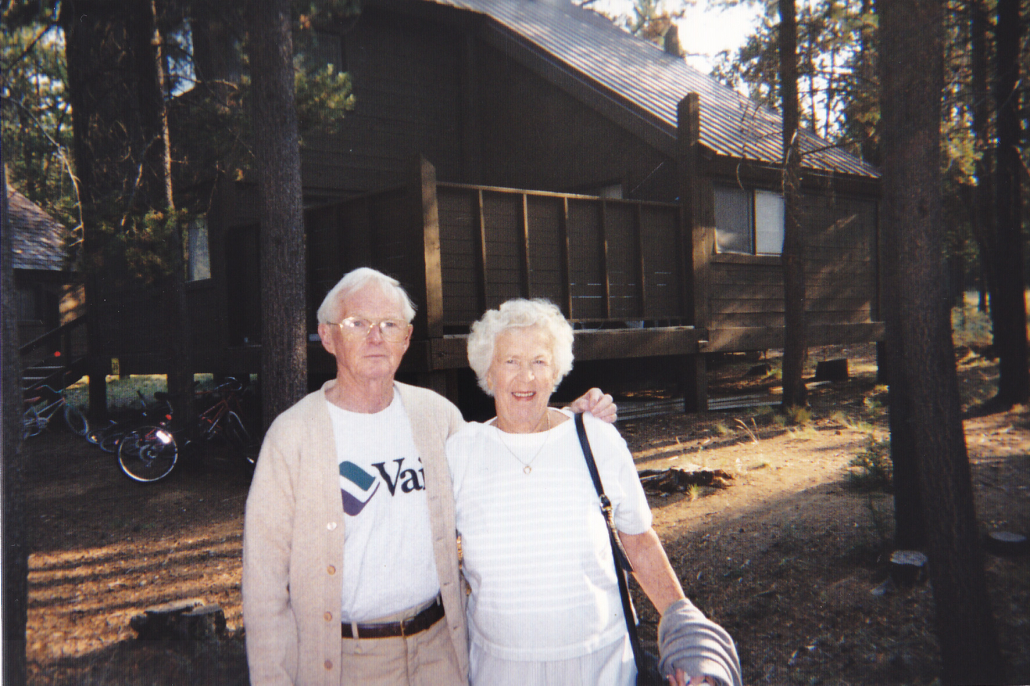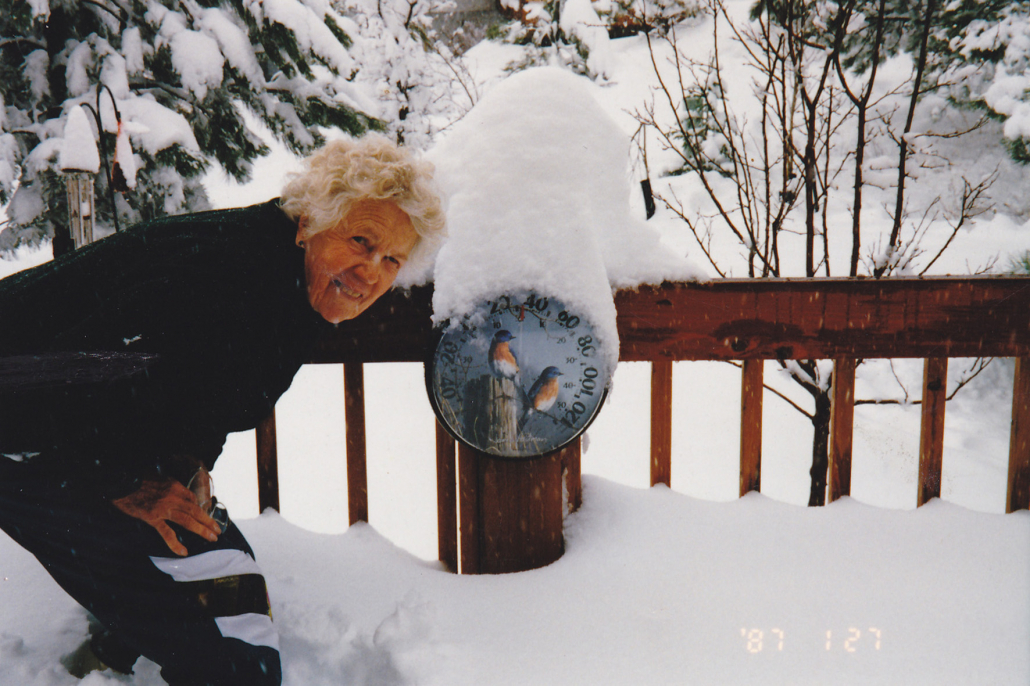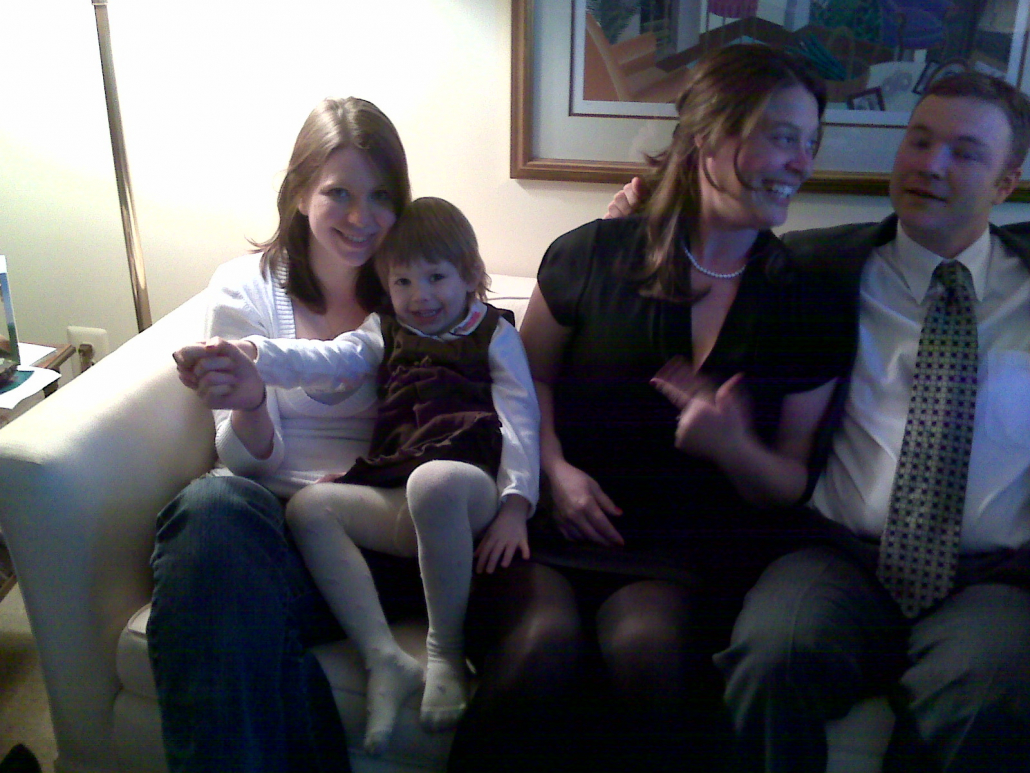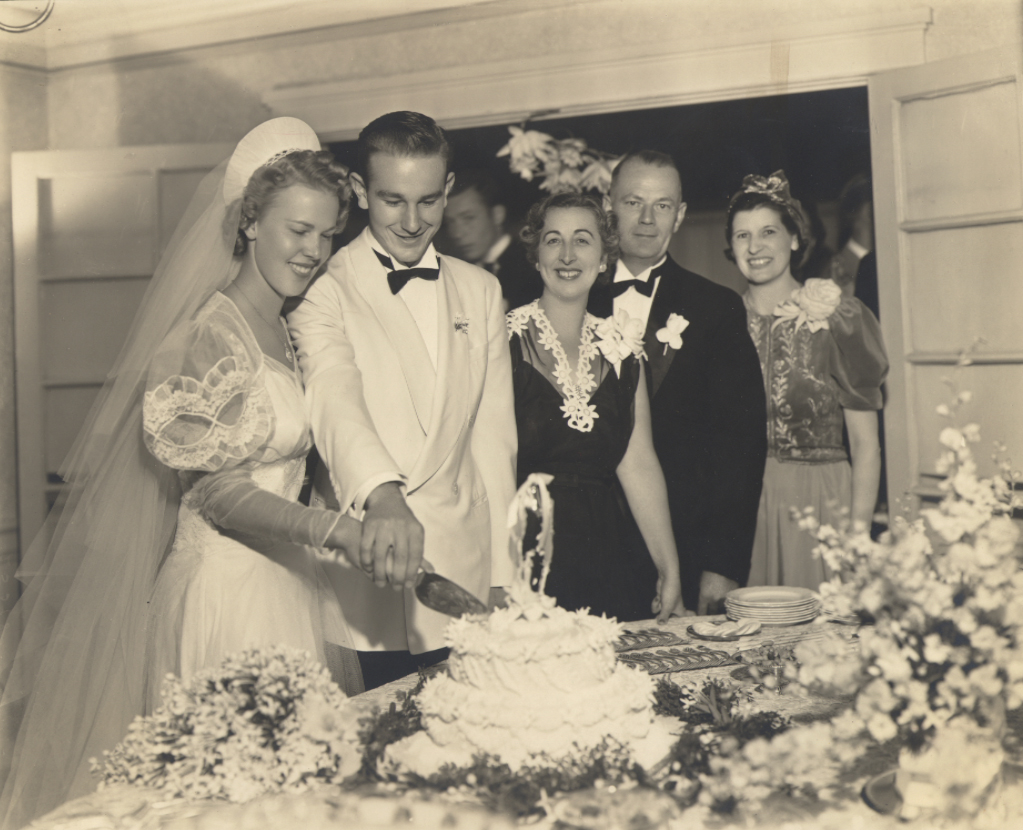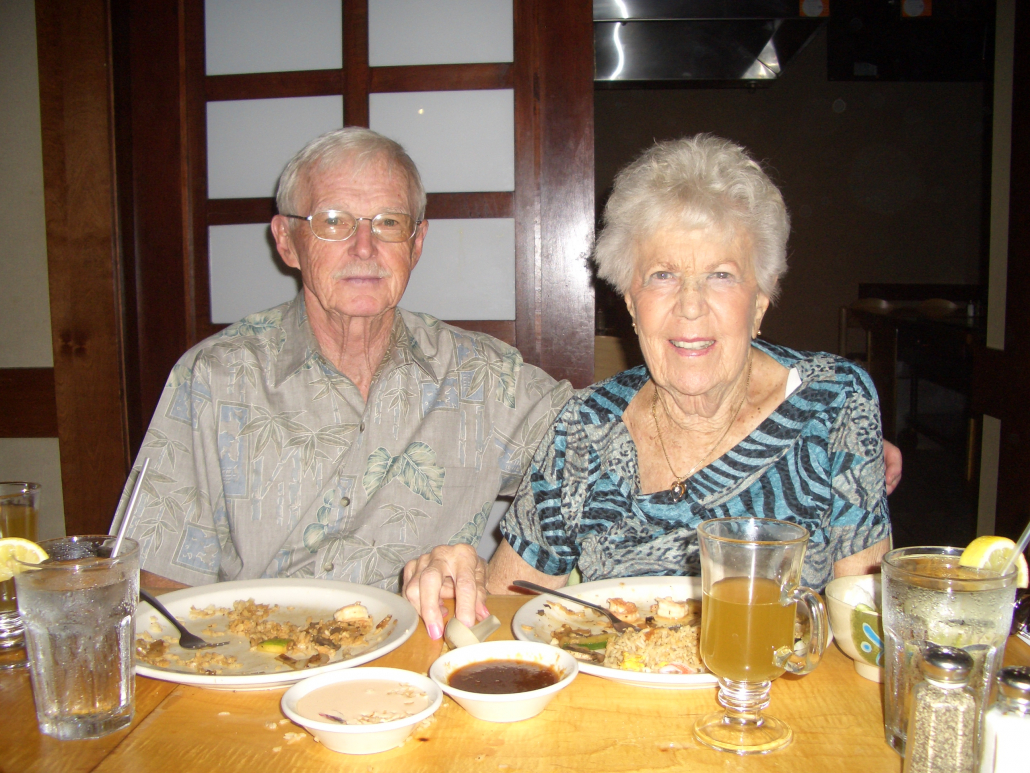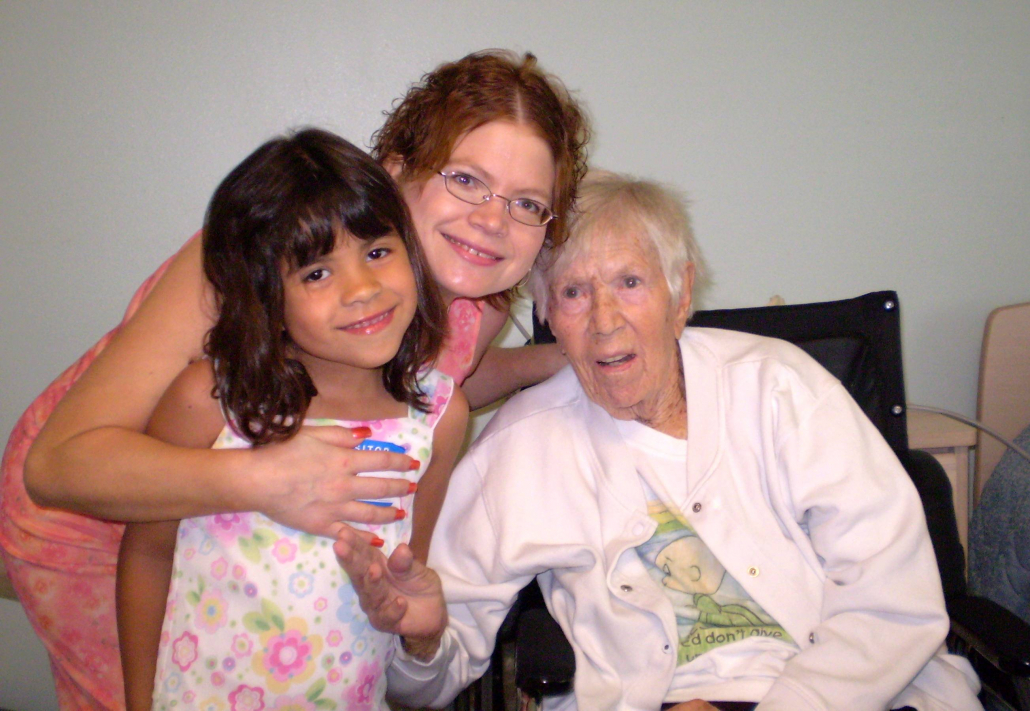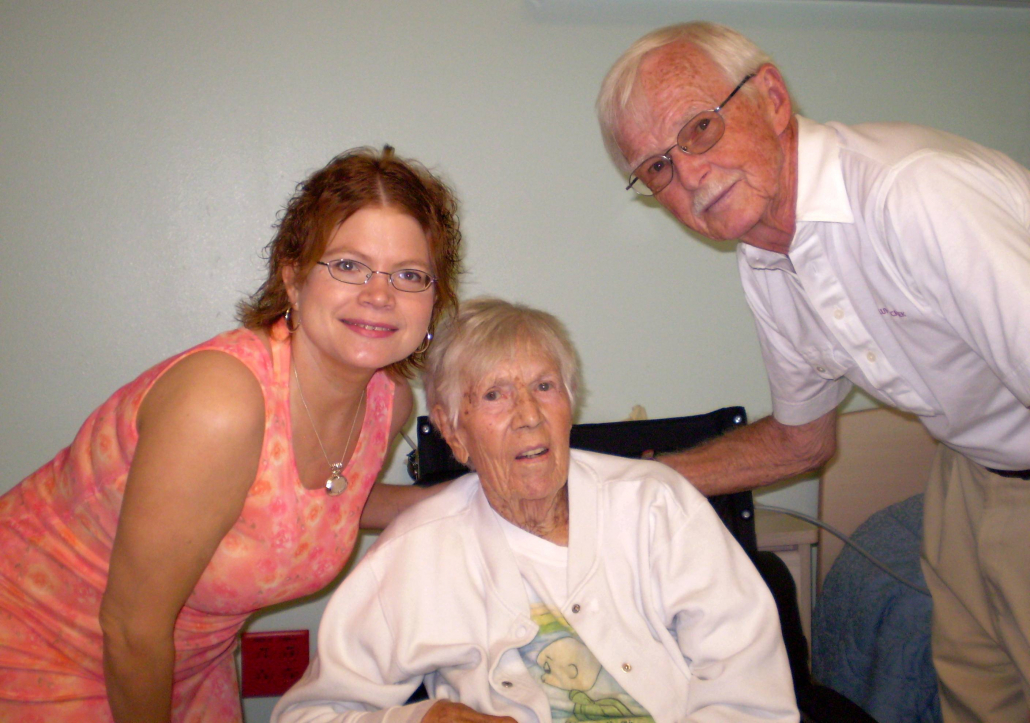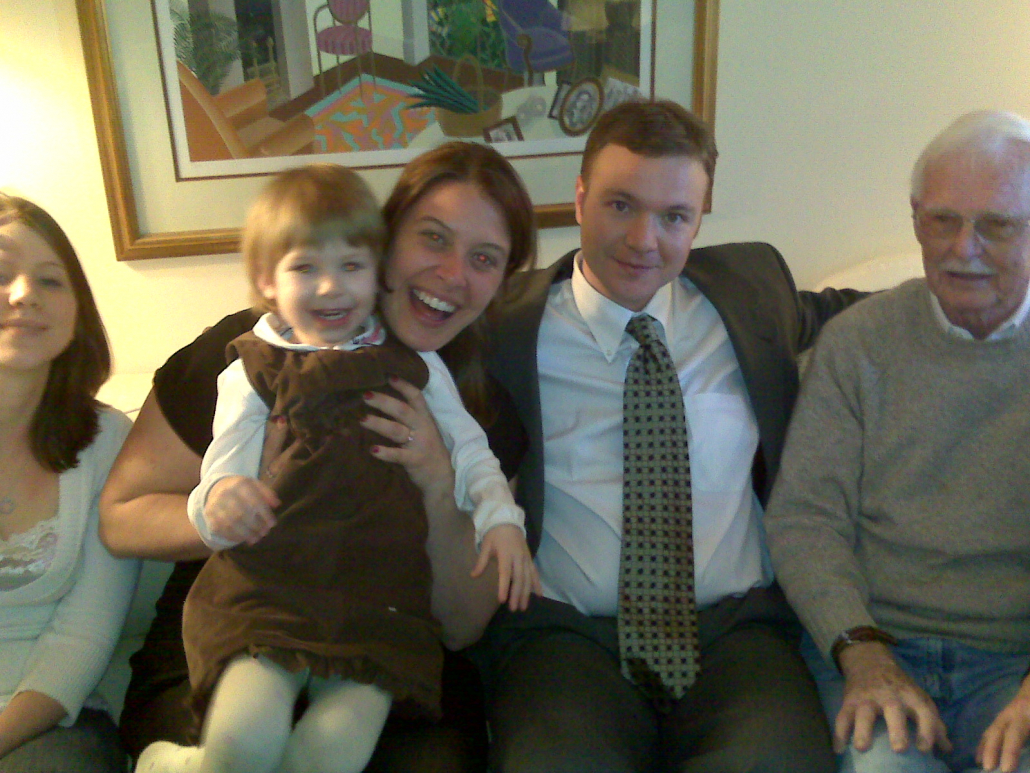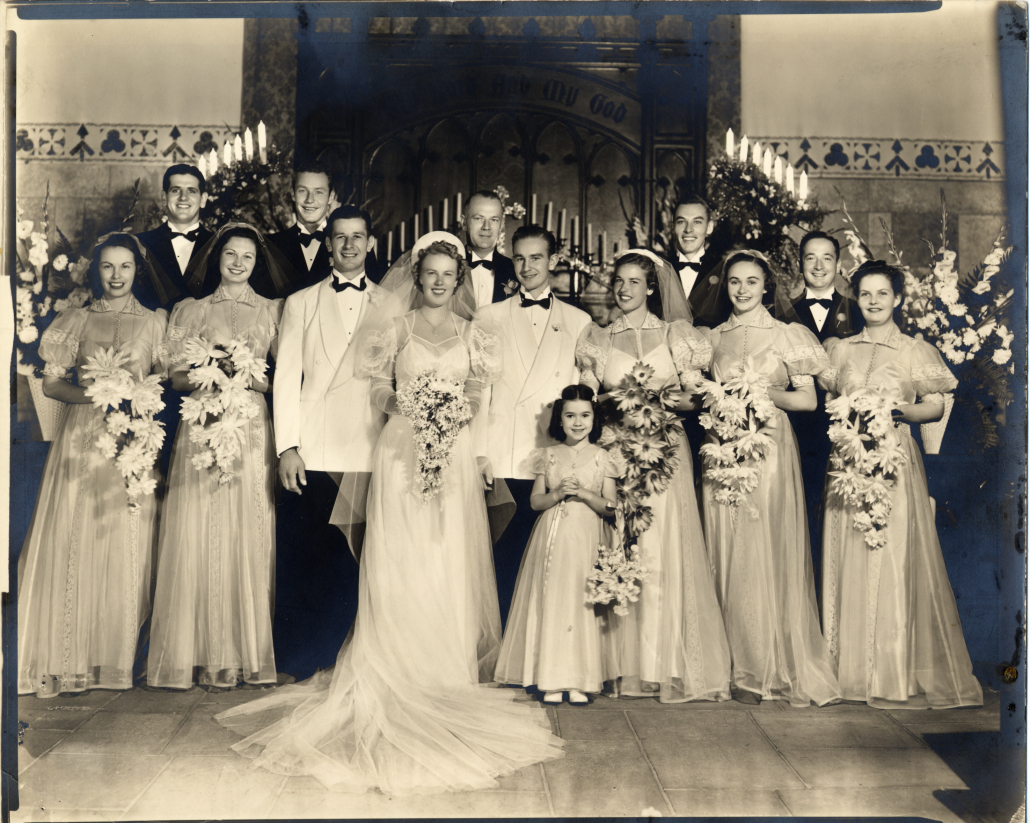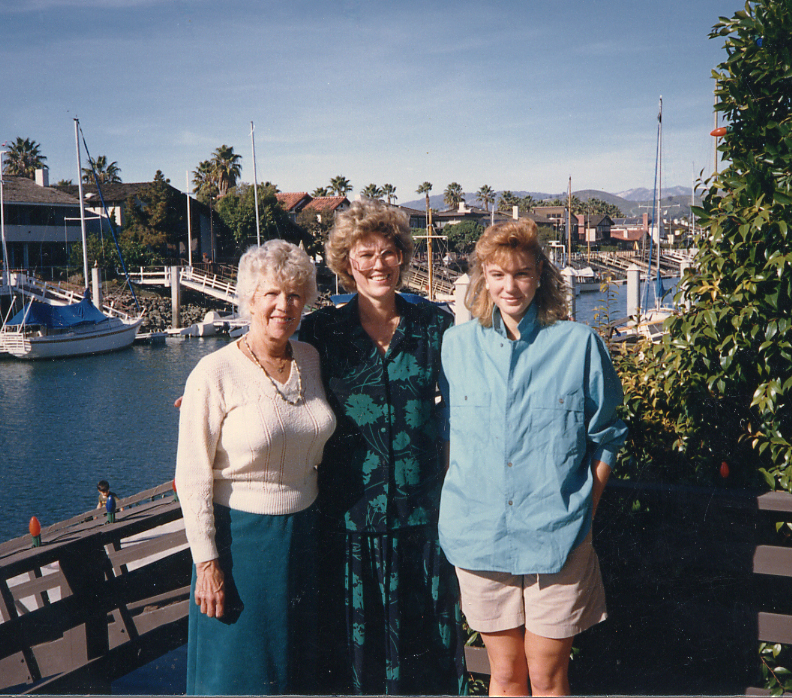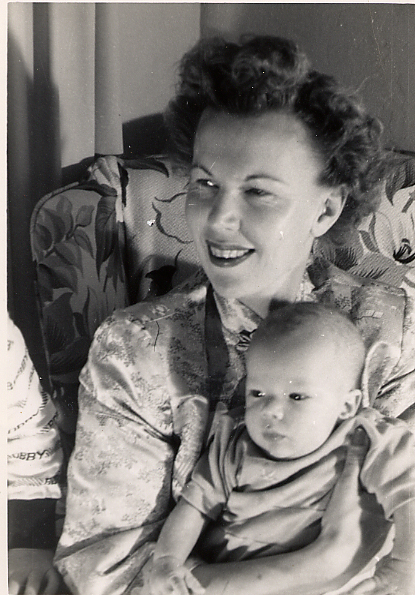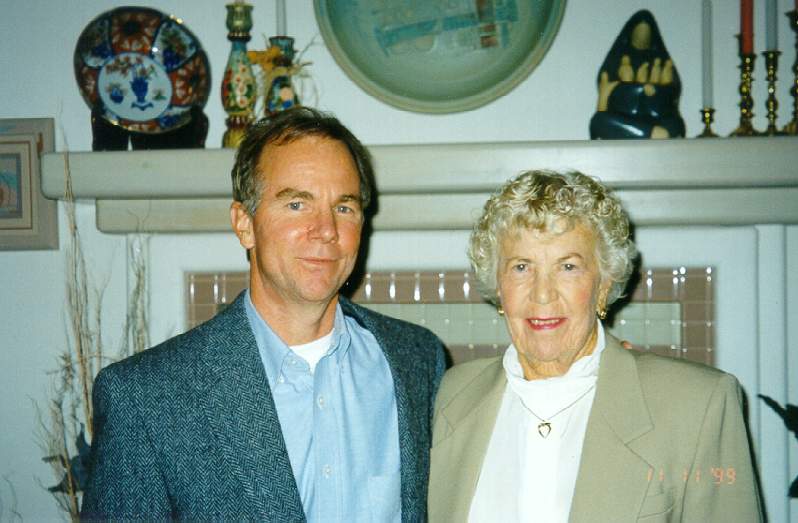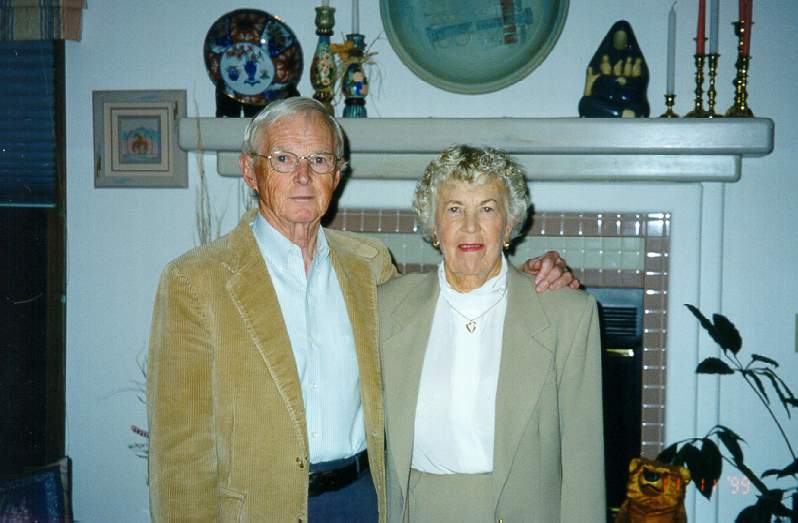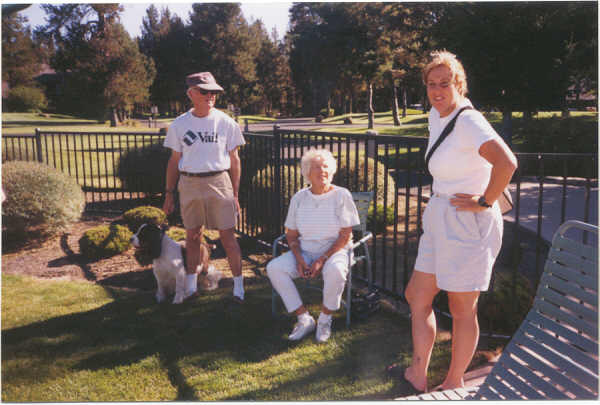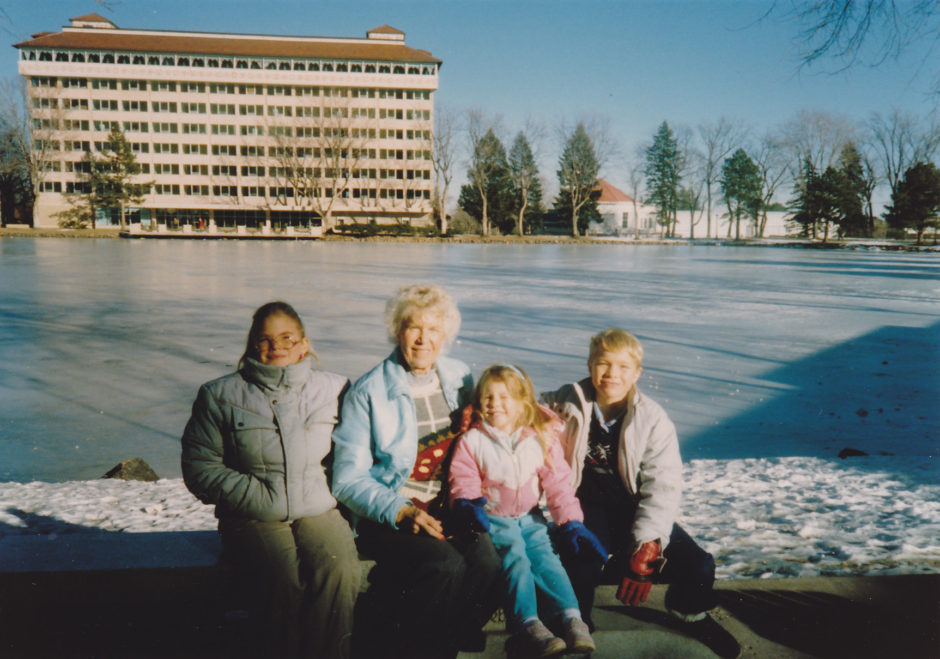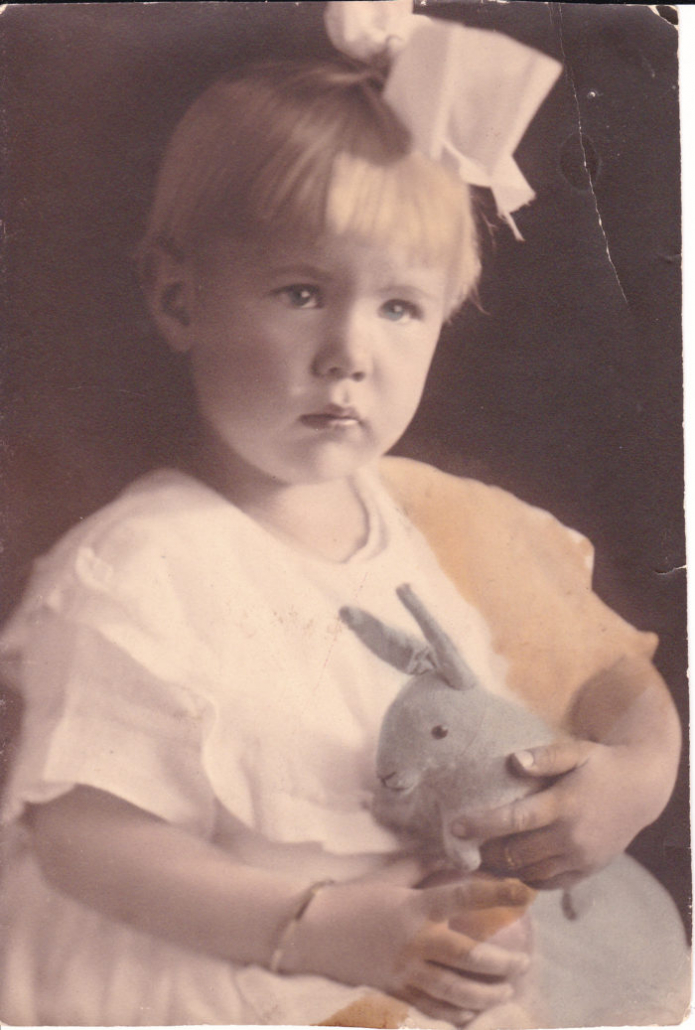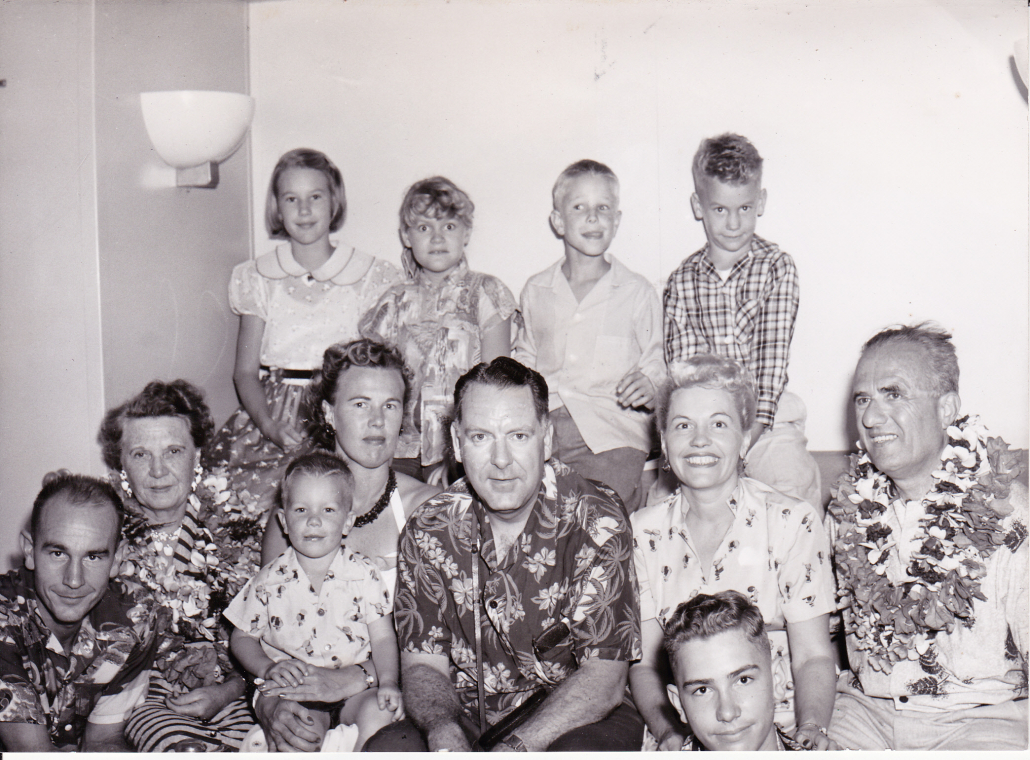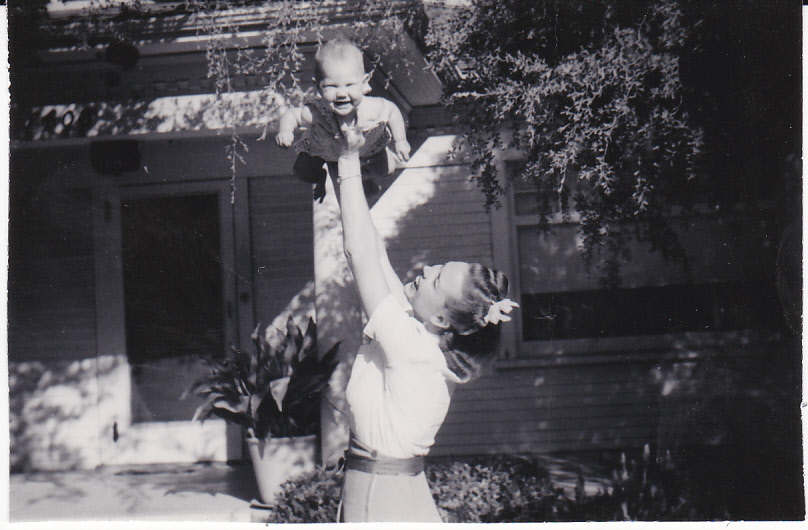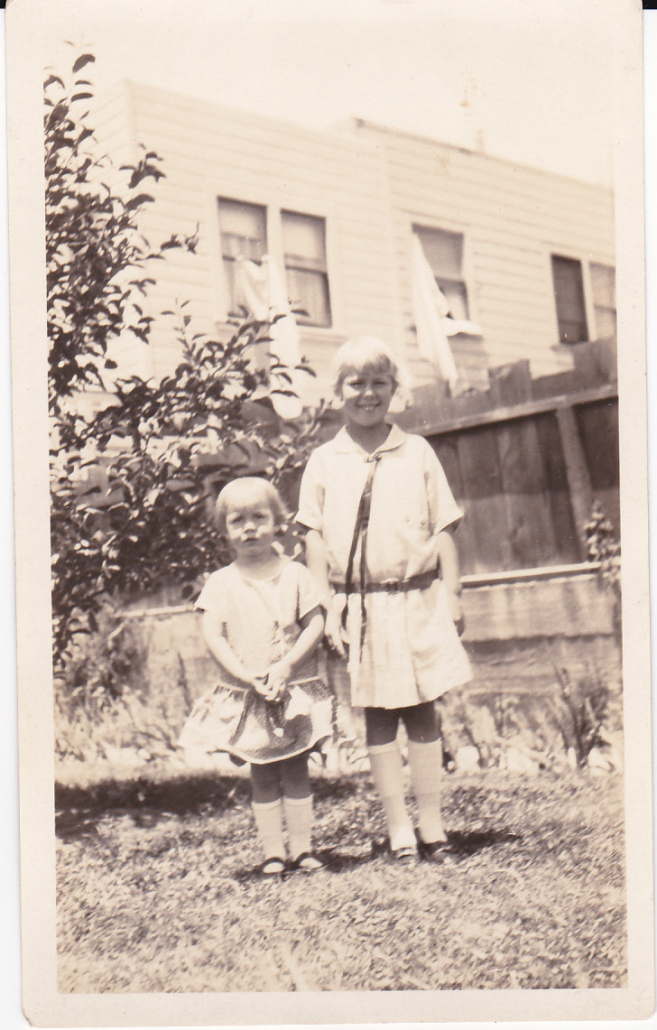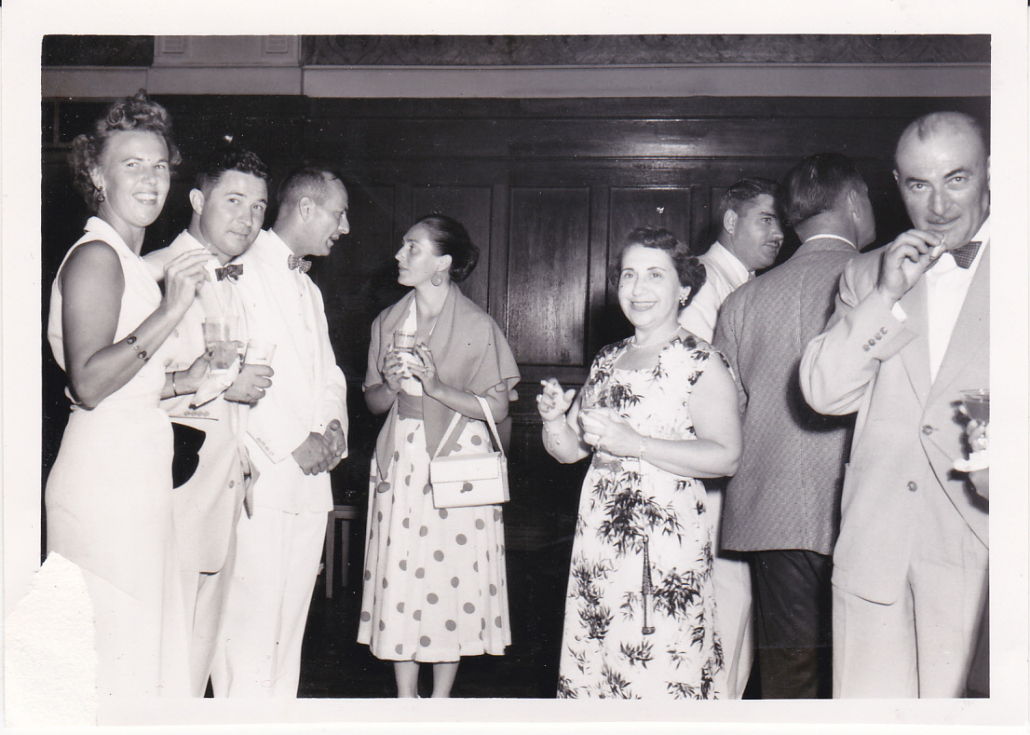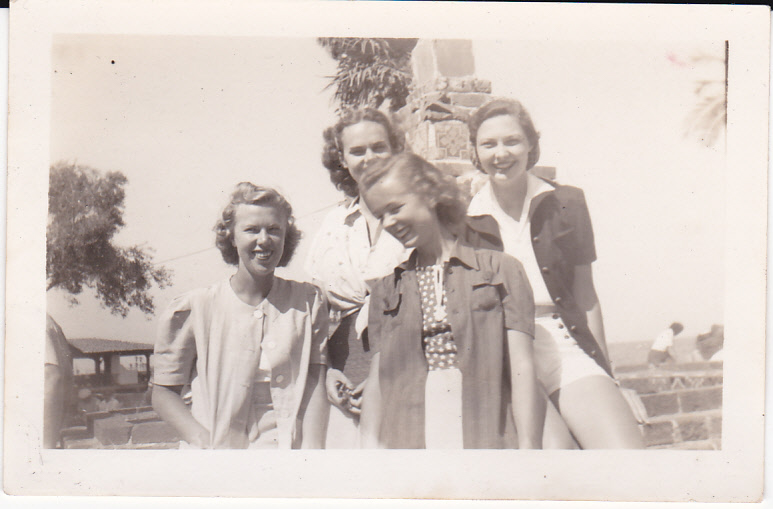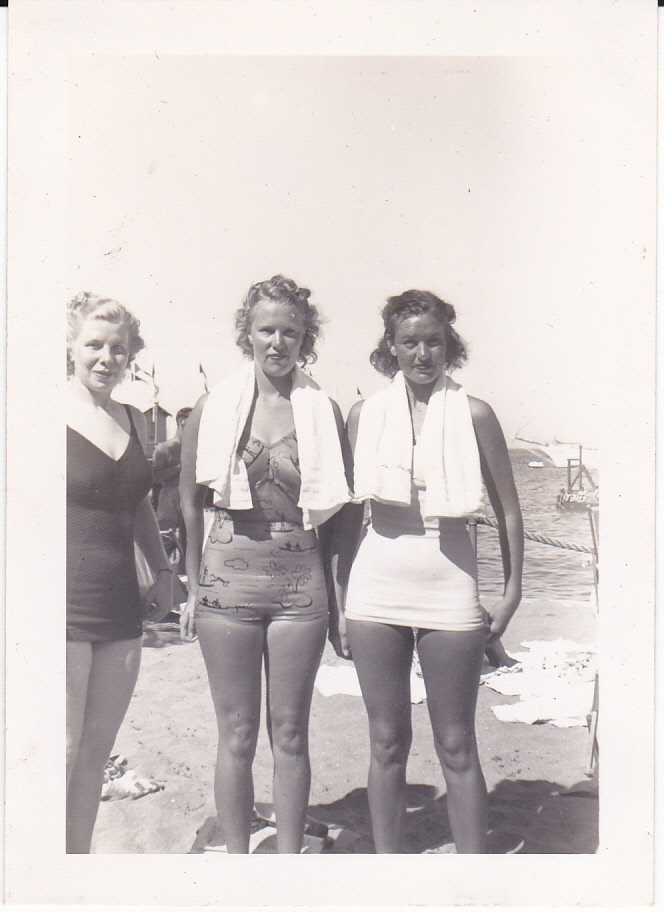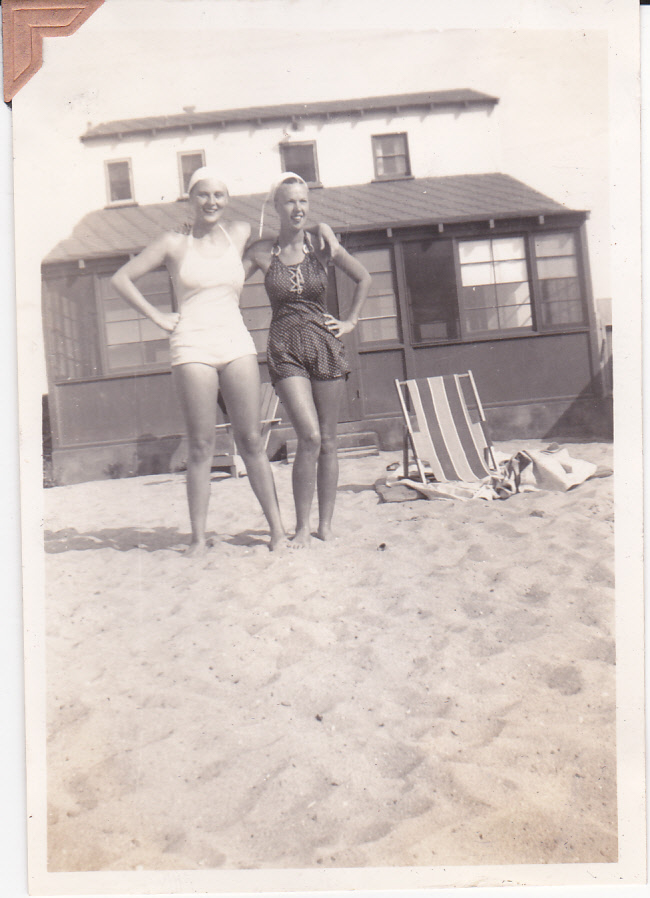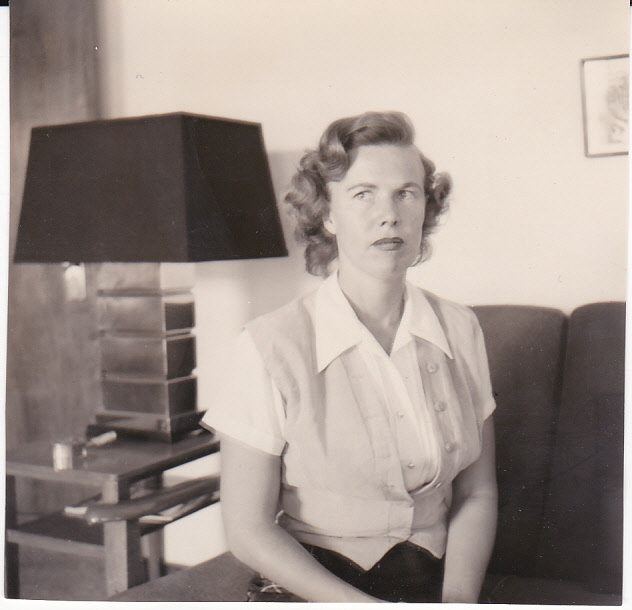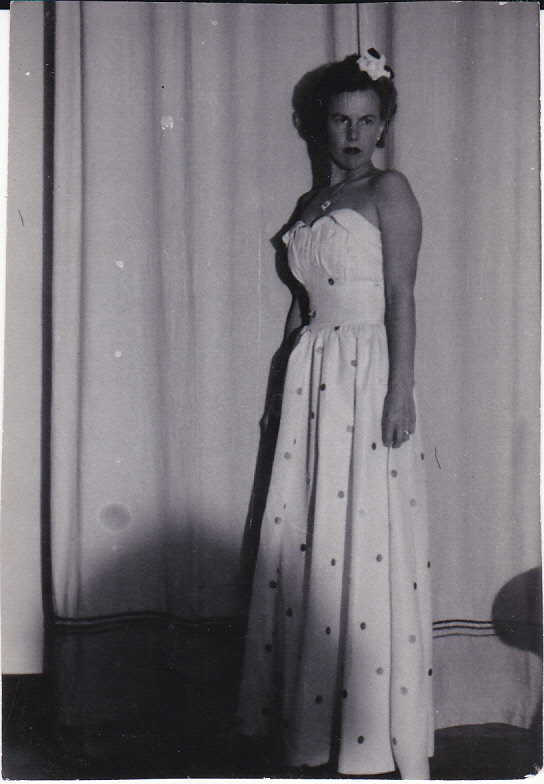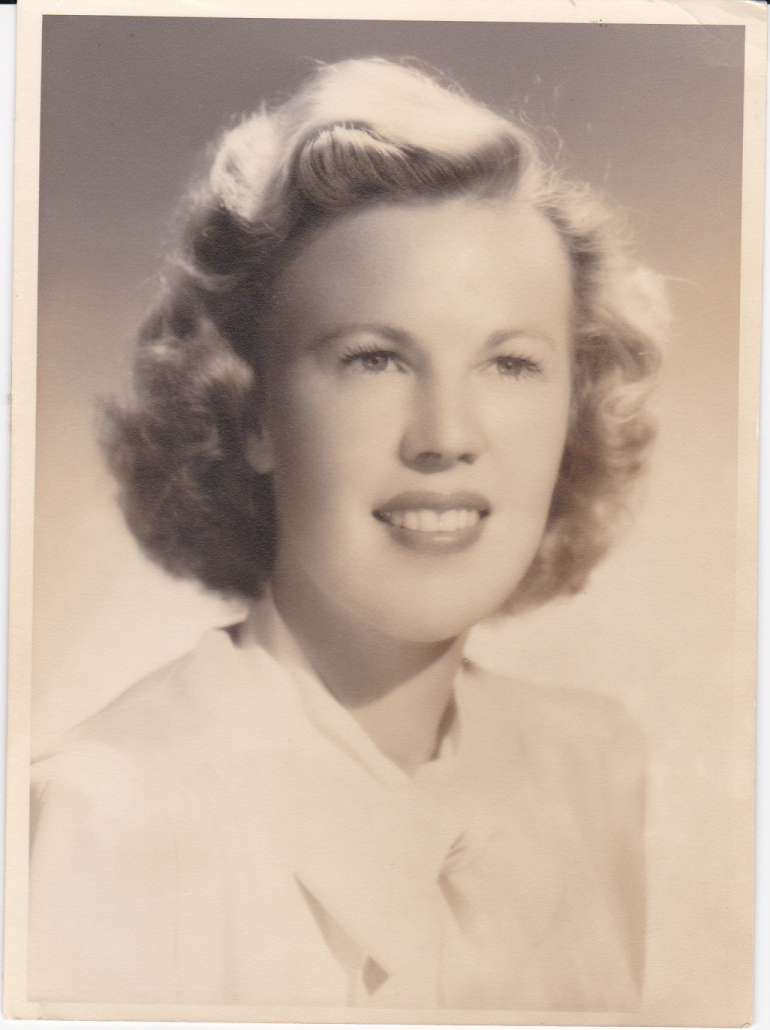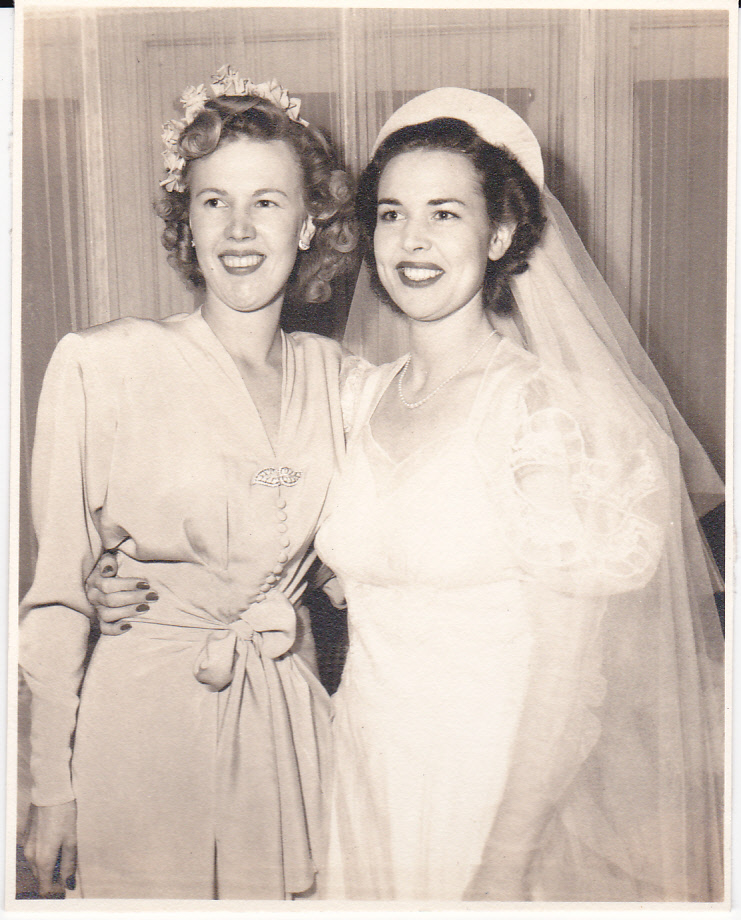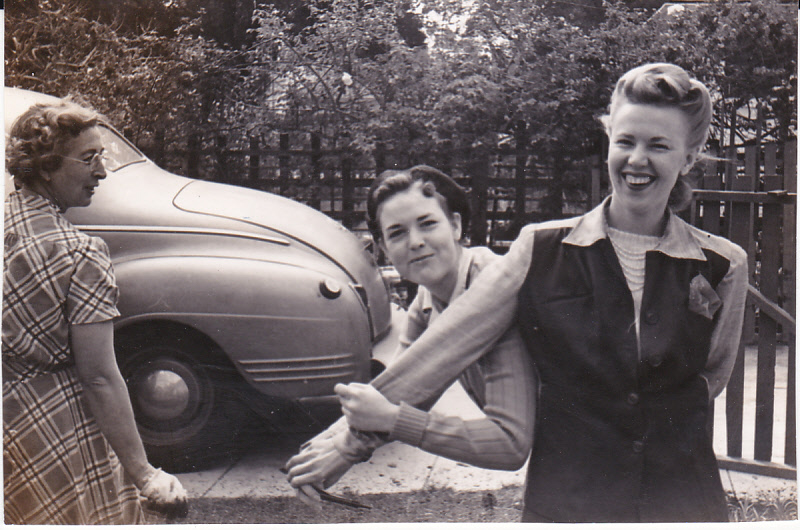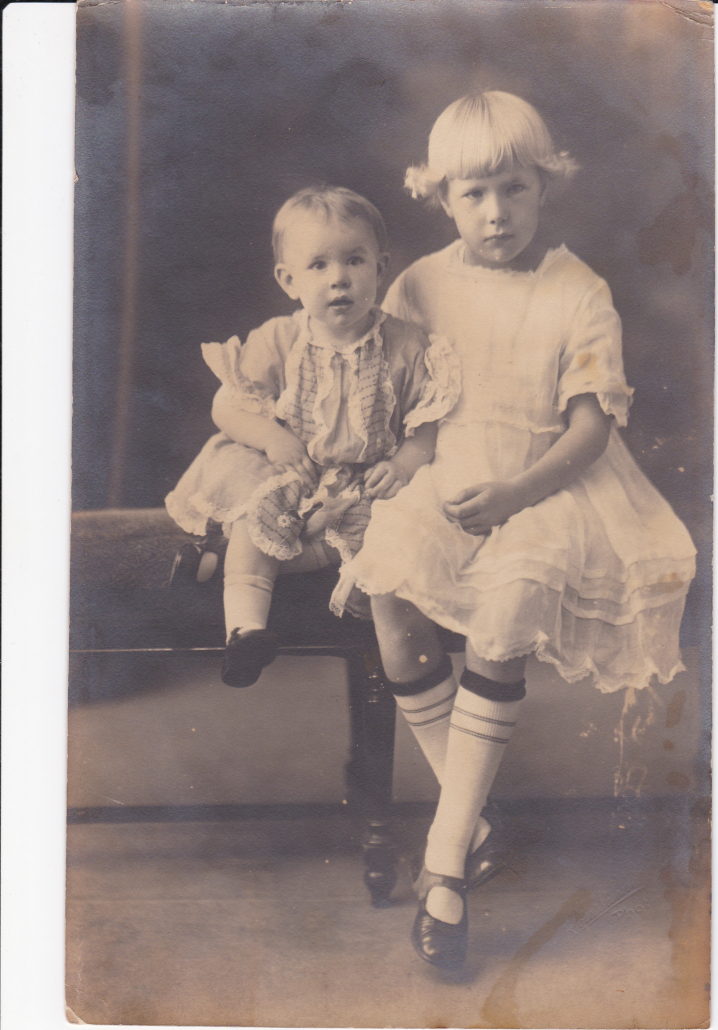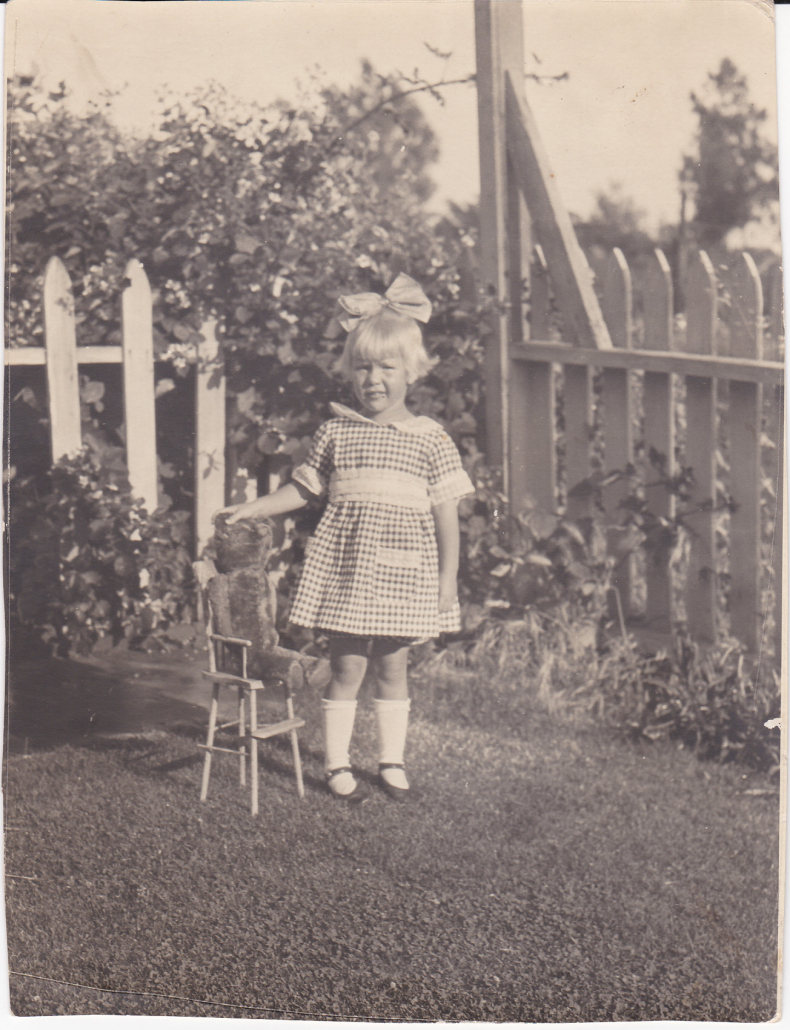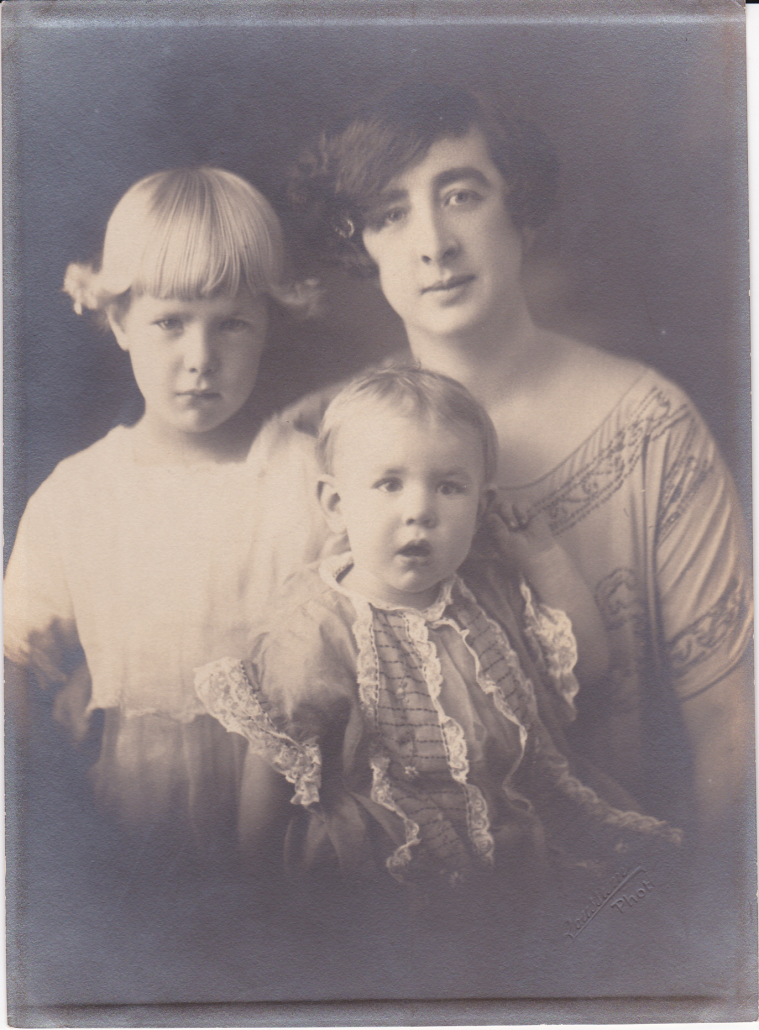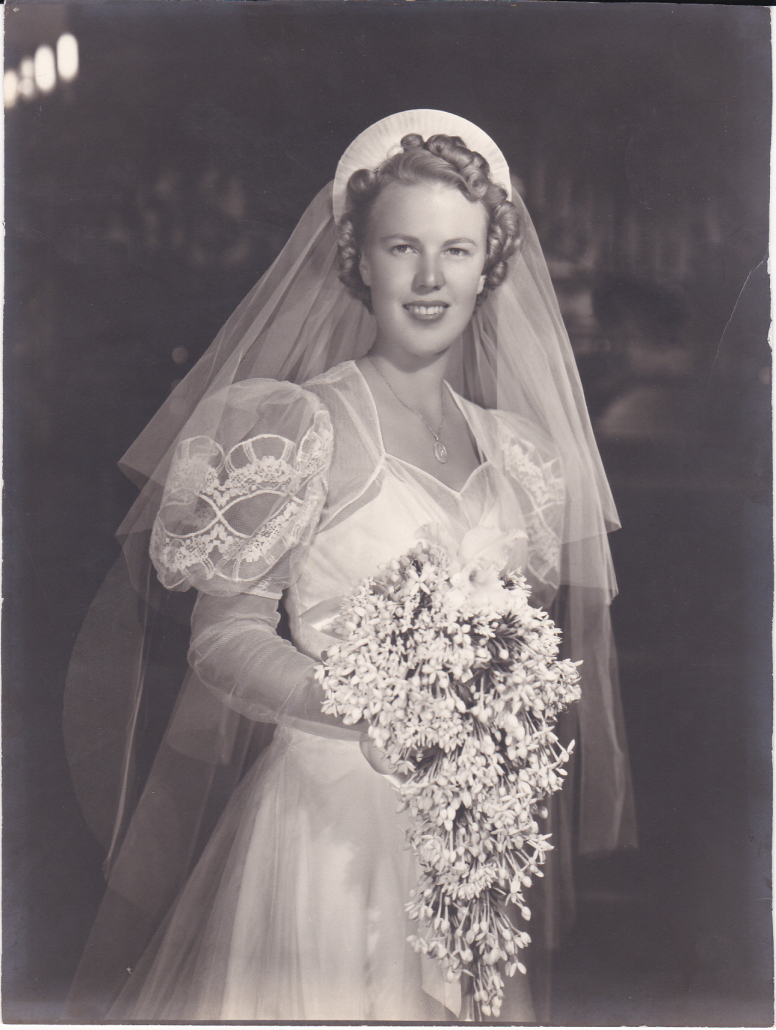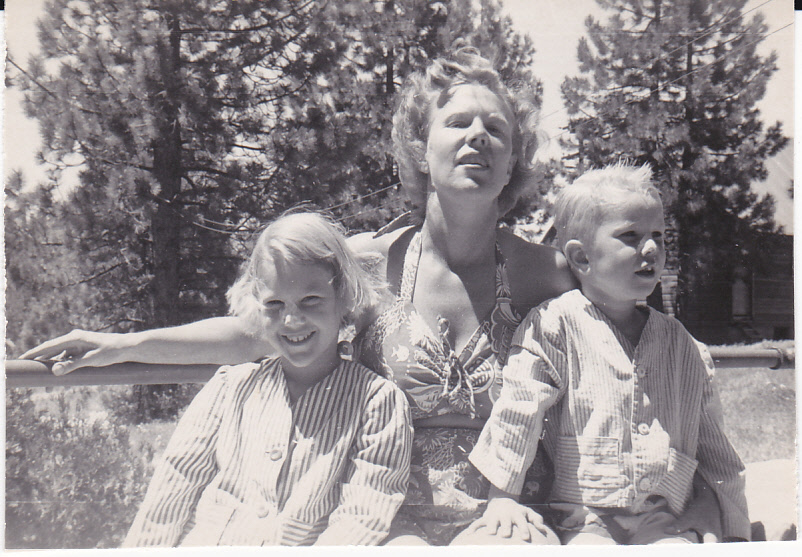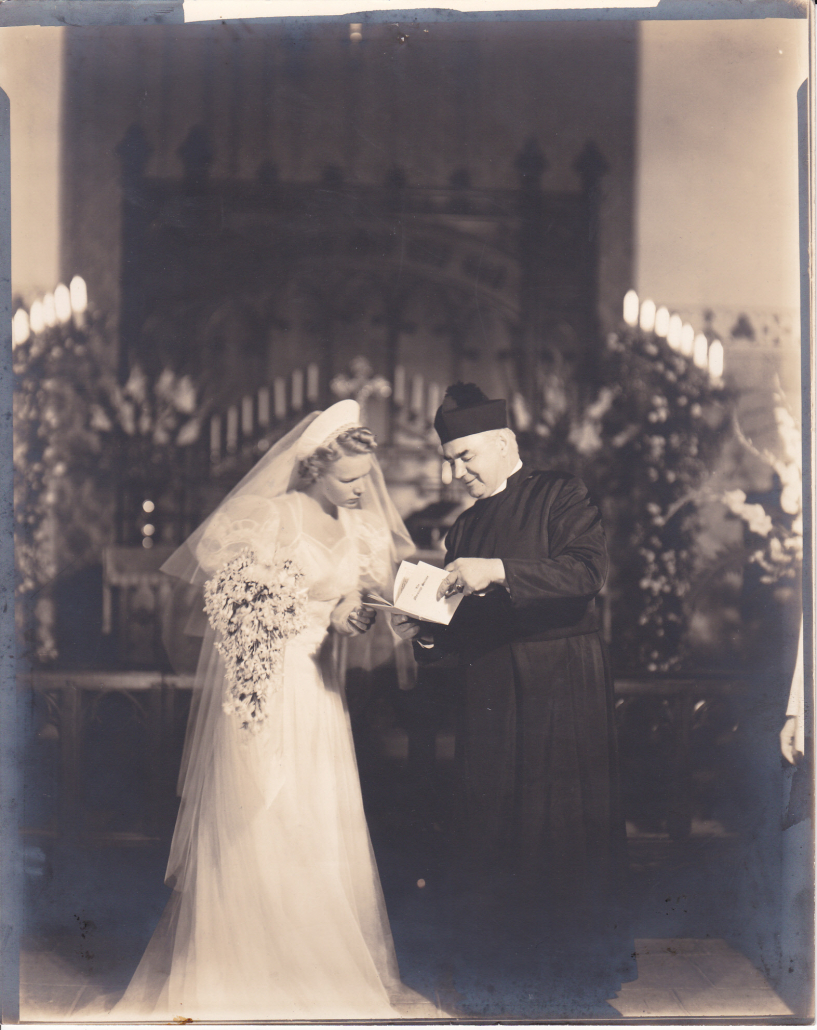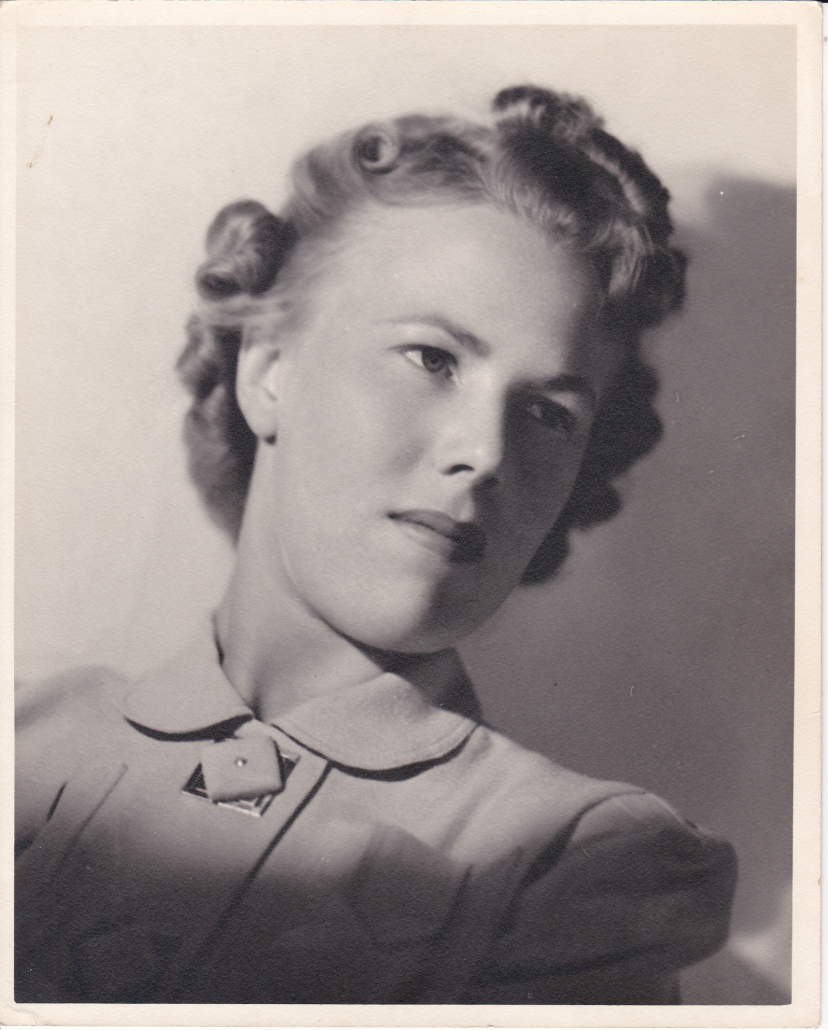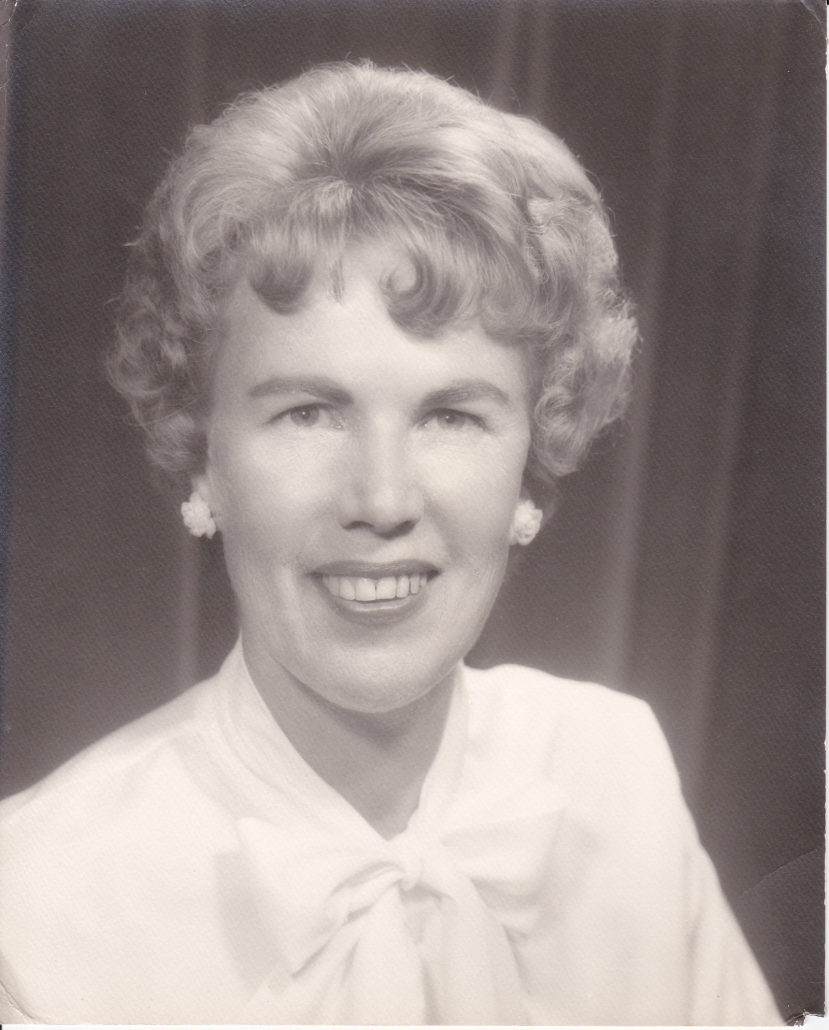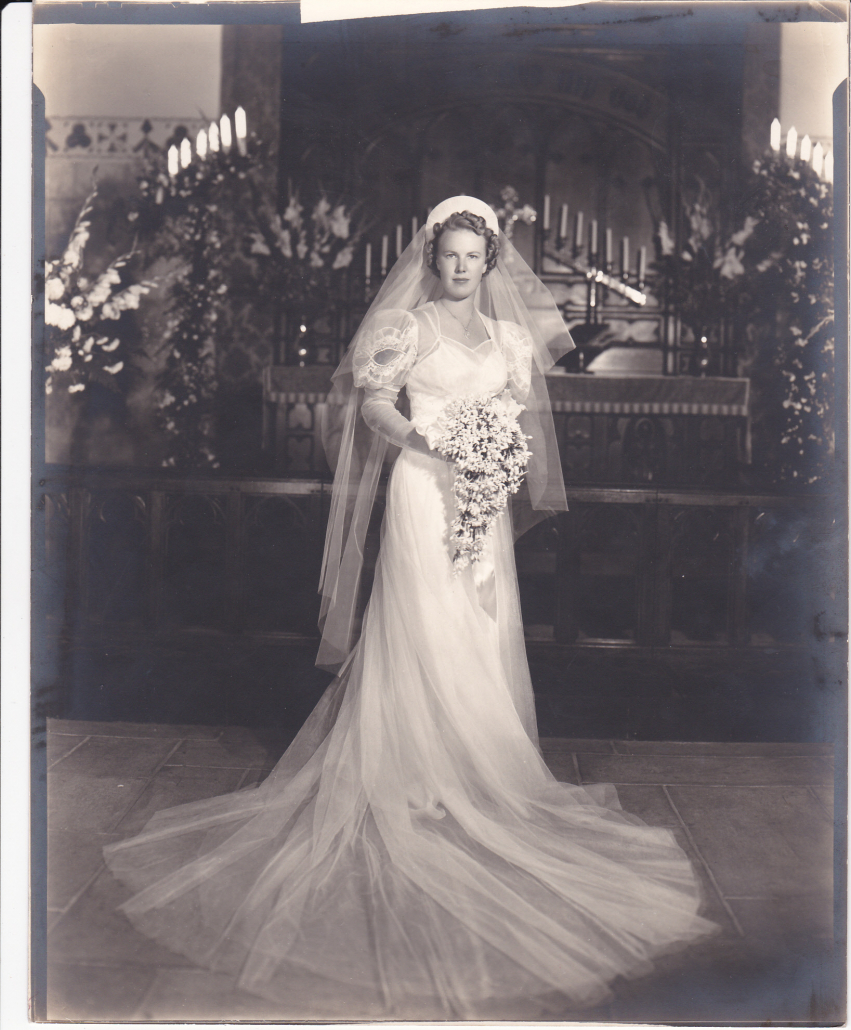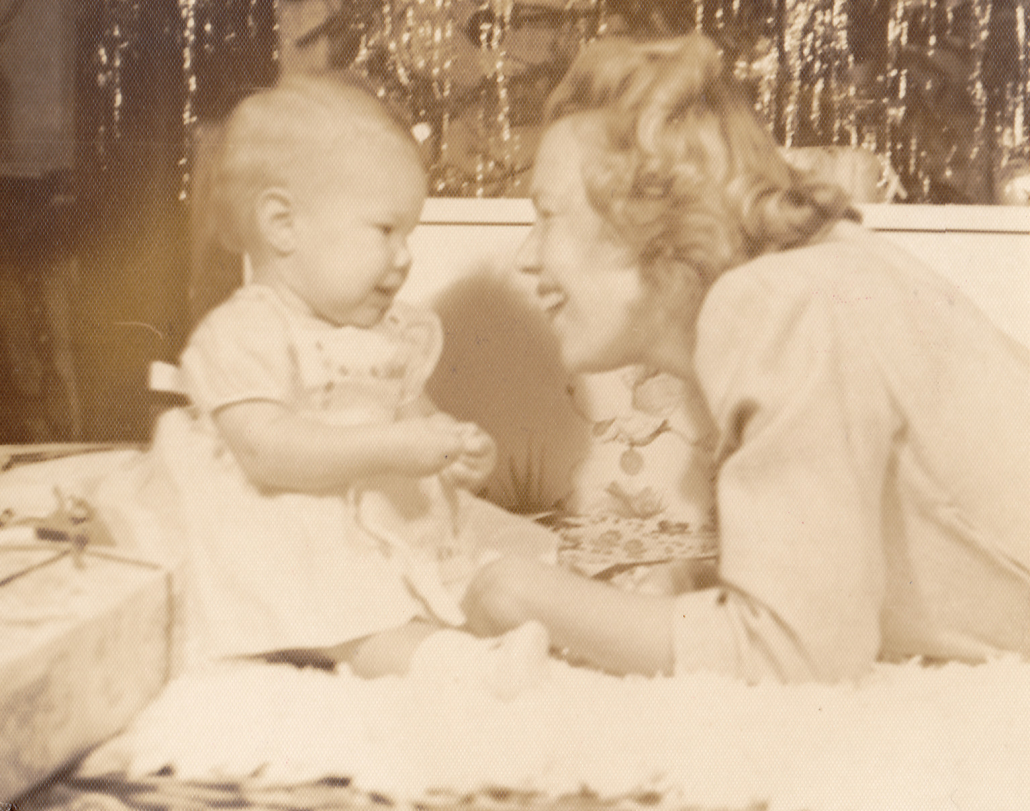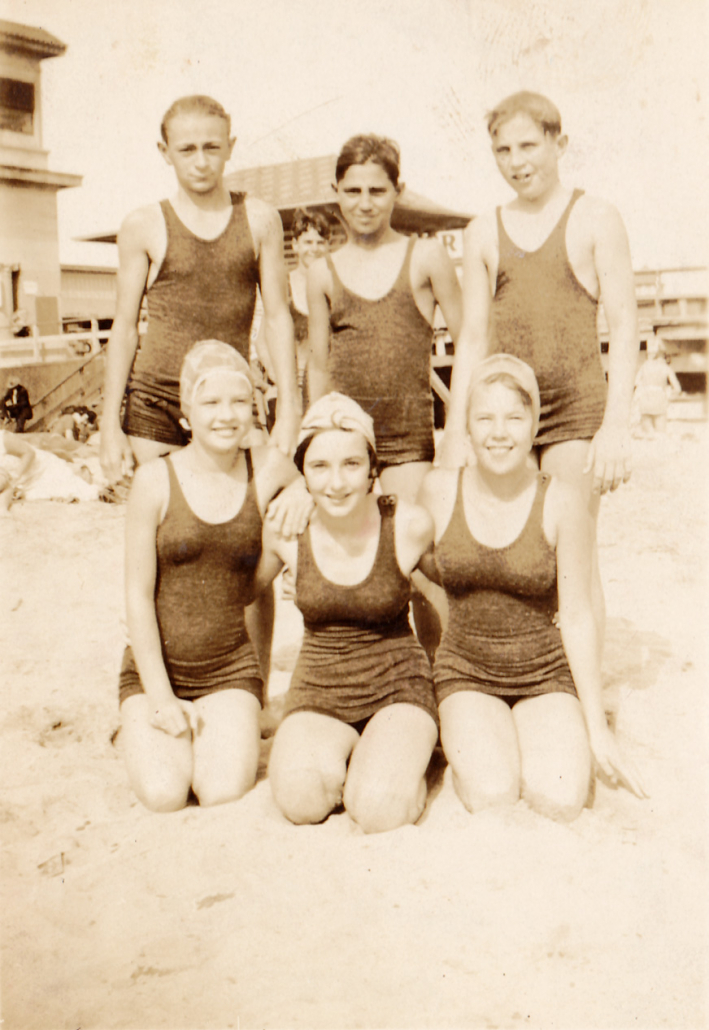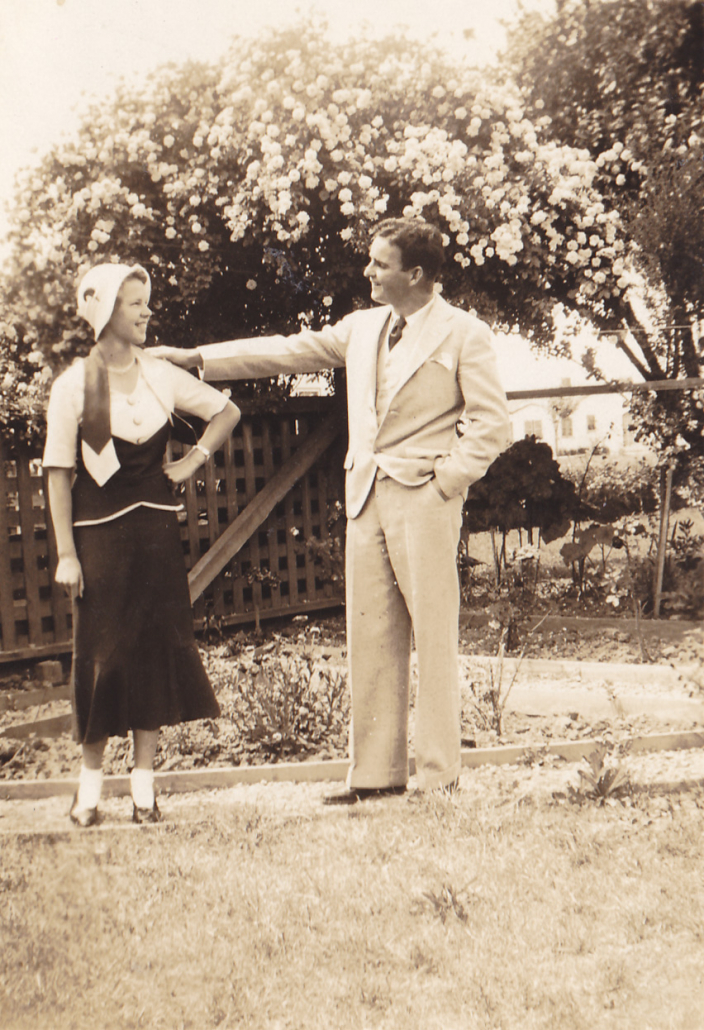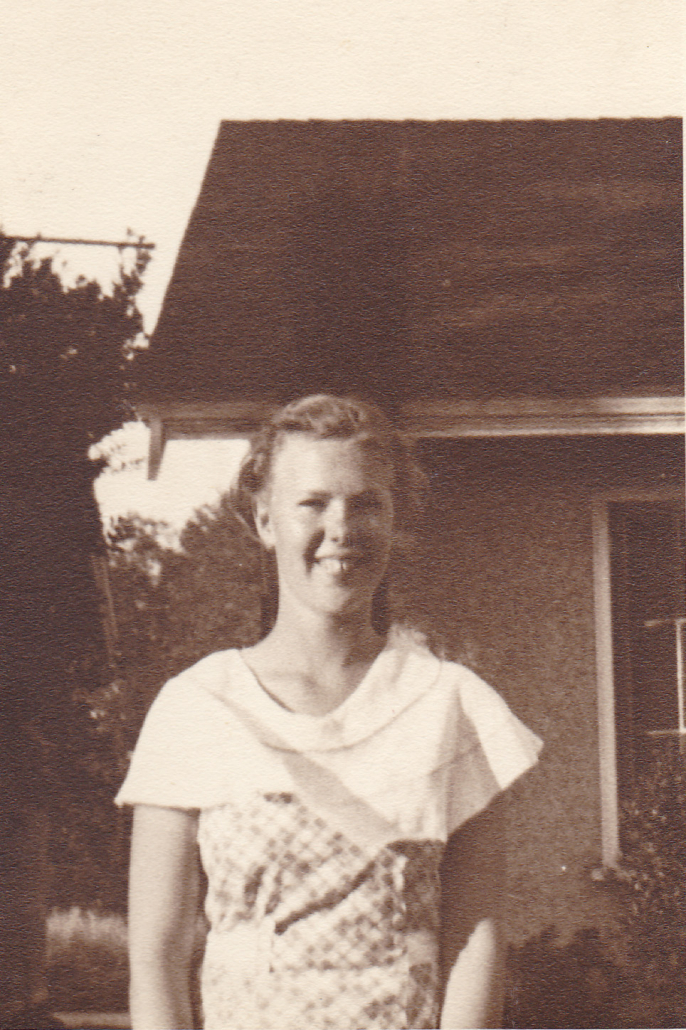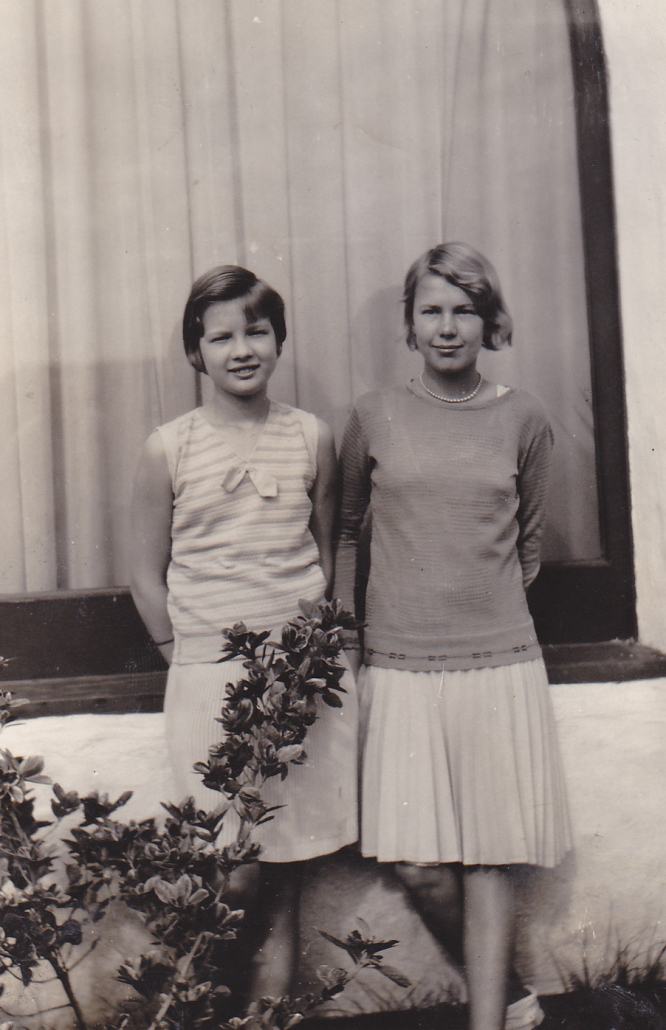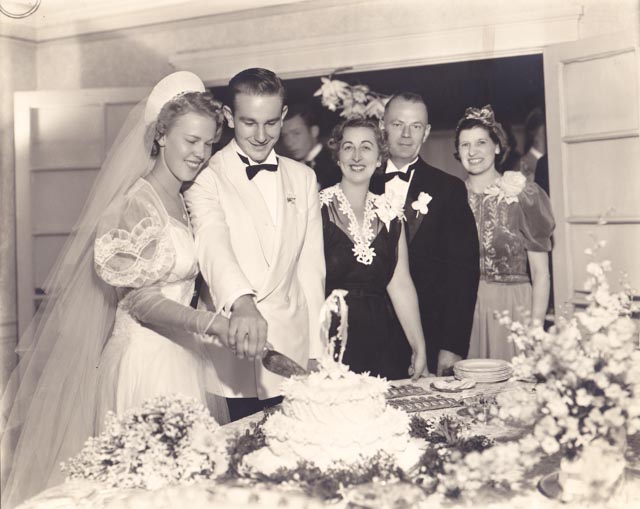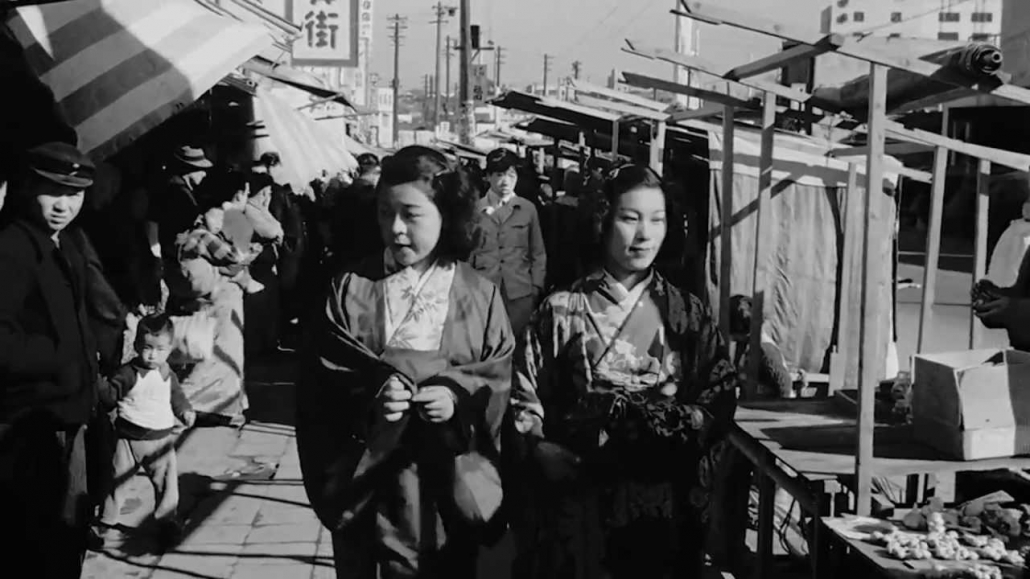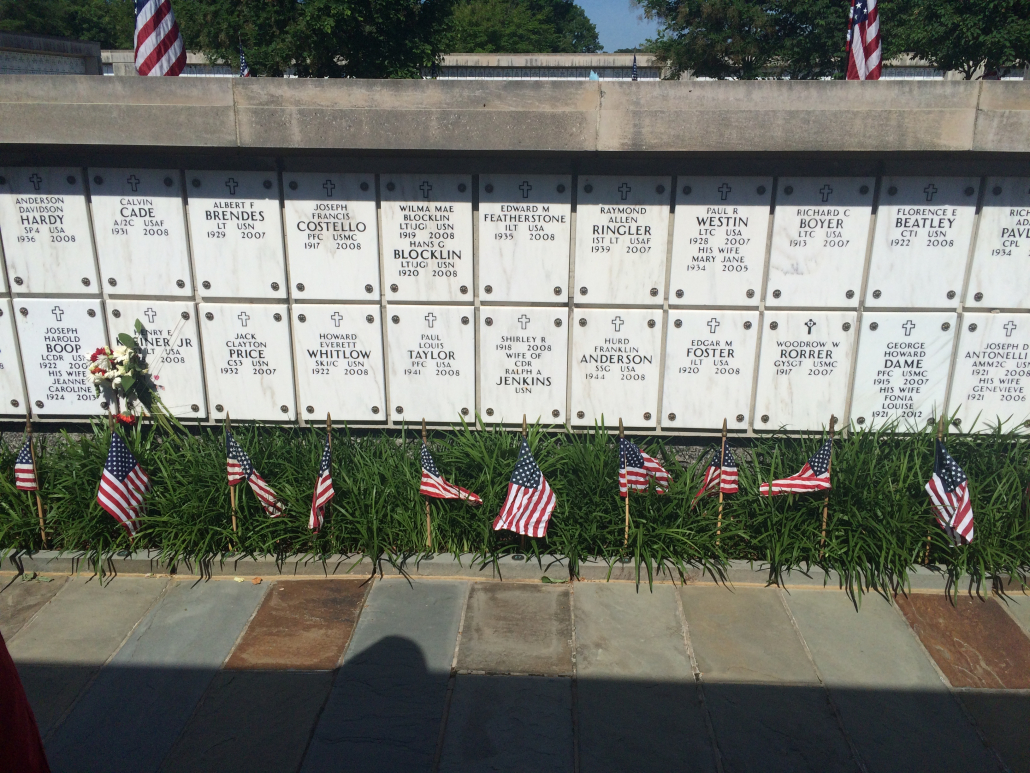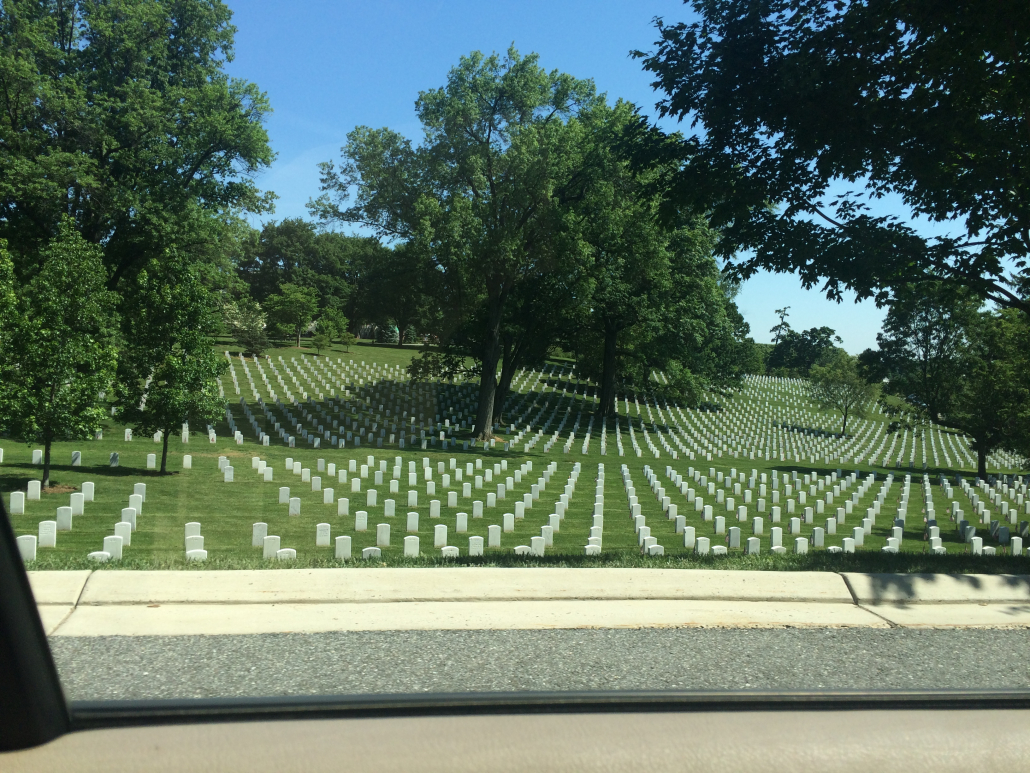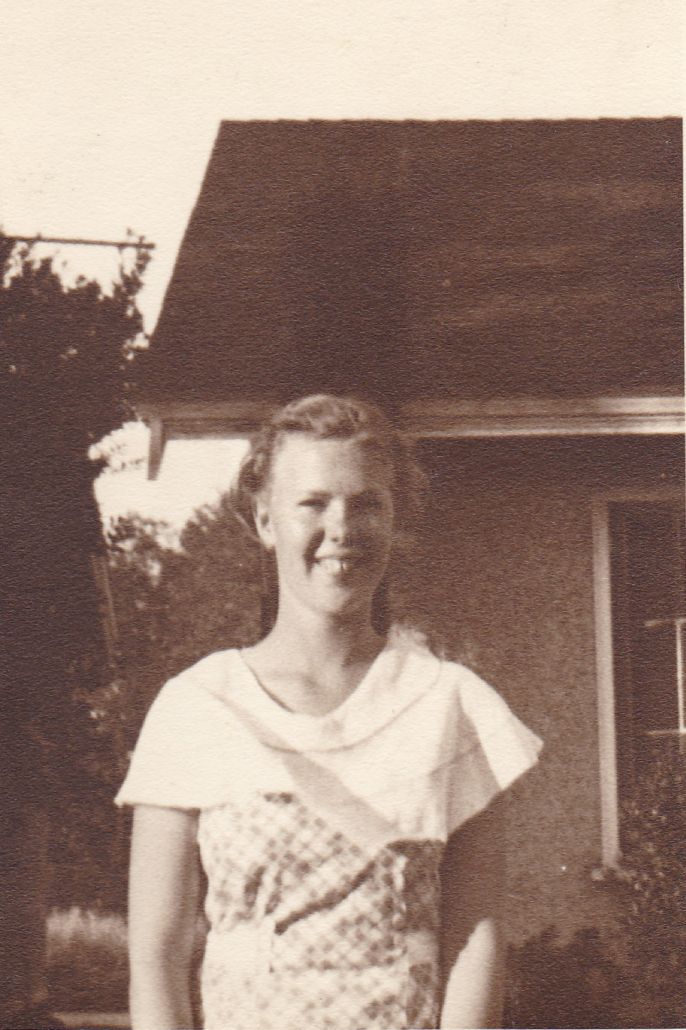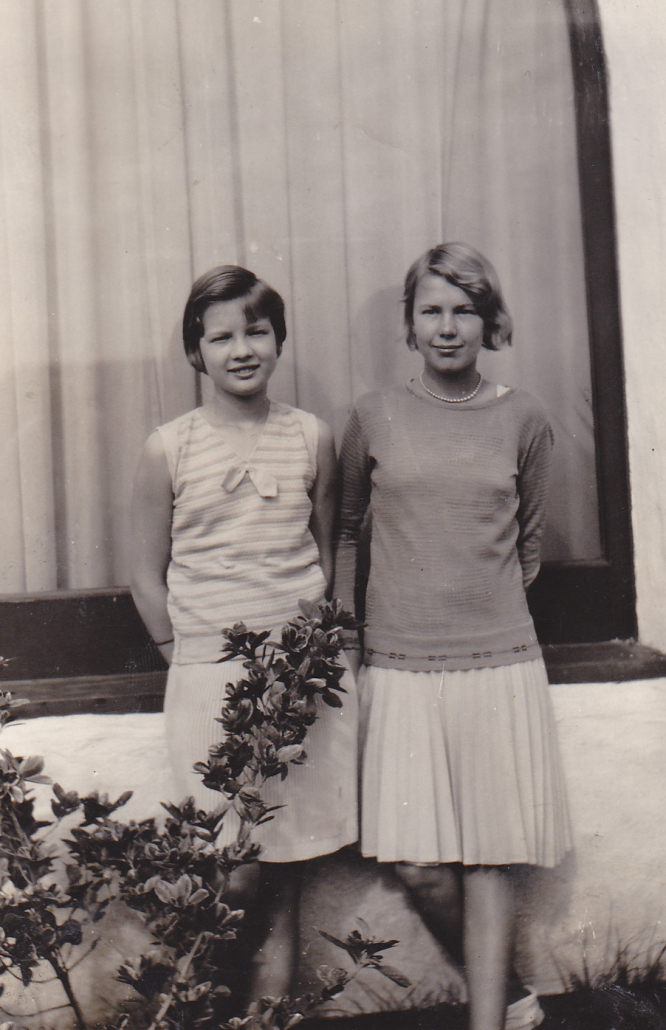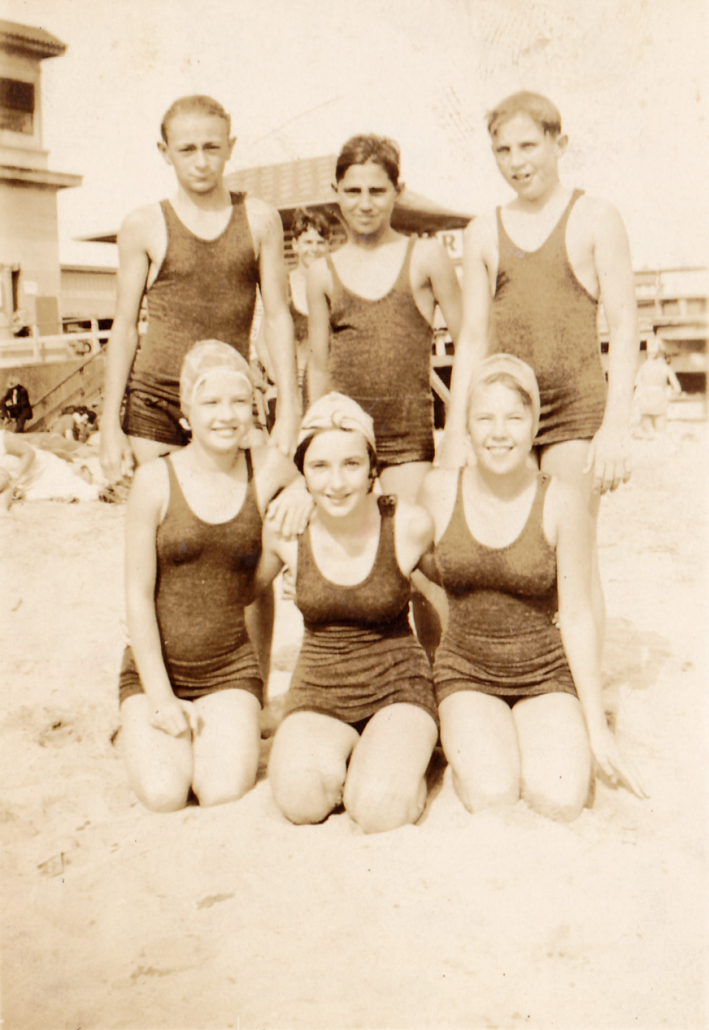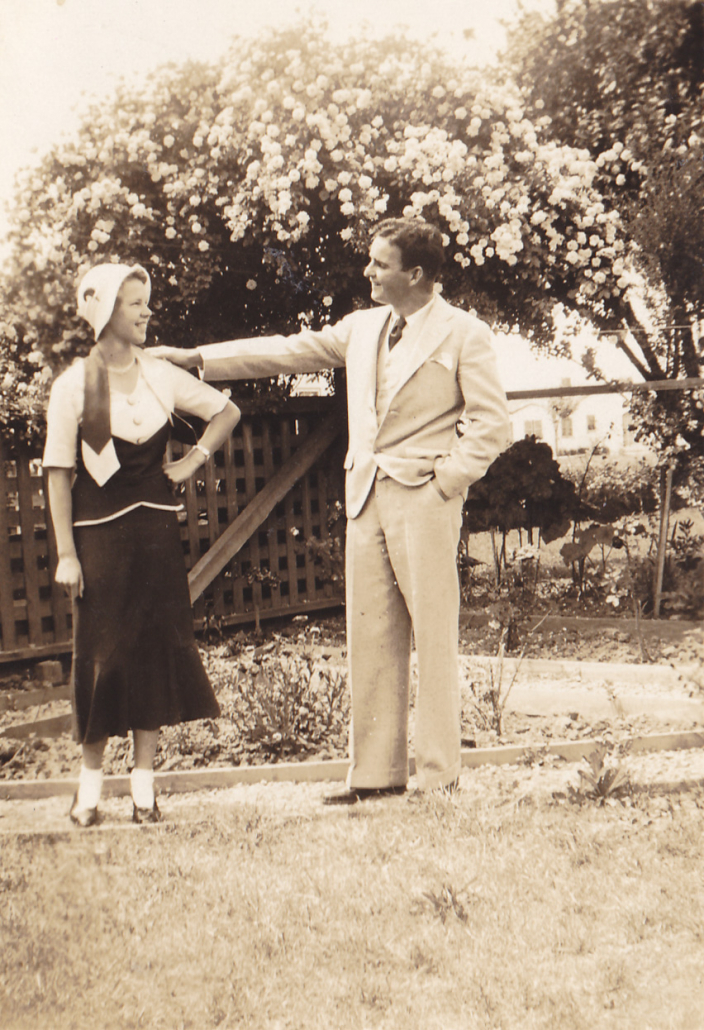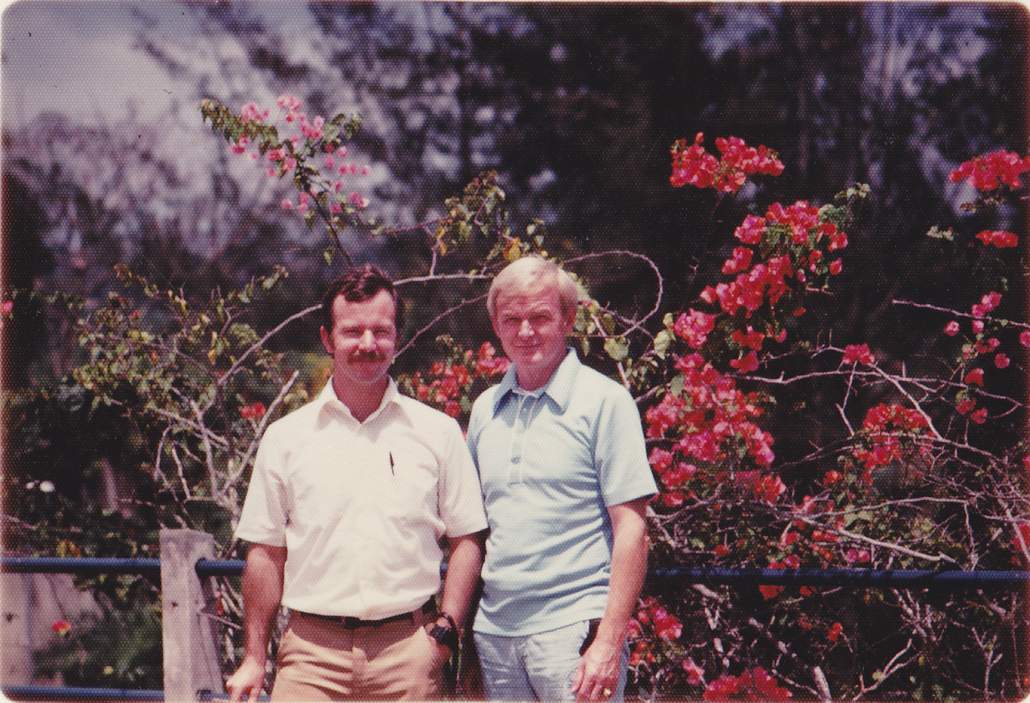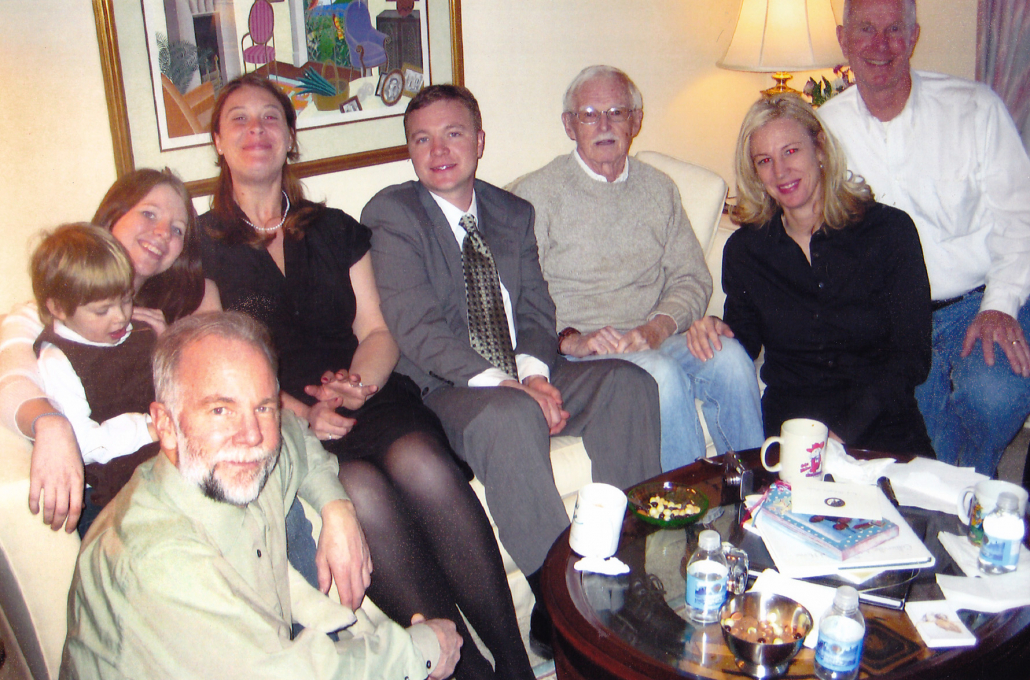Shirley Loraine Rylander Jenkins
My parents were divorced, and both remarried. Thus I have a step-mother and step-father. Both my step-parents came into my life after I was grown up, within a couple of years of each other in my teens. To me, they were Hanny and Ralph. I was much closer to Hanny, both in terms of character as well as interests. Hanny was a follower of Sai Baba, was involved in yoga and meditation, and had a special room in her home for prayer and meditation. I can think of no one else in my extended family who lived these values, the same as mine. A lot give lip service to spiritual activities, but Hanny lived them. My dad respected her for her beliefs, and I think secretly agreed with them.
Probably how I refer to them internally and to others is an indication of my relationship. Ralph, my mother’s 2nd husband, took care of my mother– literally at the end of her life but figuratively since the start of their relationship. I refer to him as my mother’s husband. His role in my life was to moderate and help my mother. It was a wonderful role, and only Ralph could have played it so well. Ralph died on 26 December 2018 at the age of 90.
The life and relationship of Hanny and my father were an example that all his children and Californian grandchildren praised. All loved to be with him at their house. Sandy’s oldest child became like a step-daughter to them, even taking the “Reusche” name (her father was Robert Weich). Kim felt the responsibility to look after her siblings after the death of their mother, and she staked out the house of my father and Hanny as her exclusive domain. I’m sure that Sandy asked them to look after Kim, John, and Daren before she died. My father and Hanny were in the middle of the events that suddenly identified her last-stage cancer, and lead to her death too soon thereafter.
My mother, Shirley Lorraine Rylander Reusche Jenkins
I always felt that the Rylander roots of my mother defined her life. She was emotionally cold (like Scandinavians?), never showed outwardly any affection, hid her fears and weaknesses from her children, and was always ready to fight for her children and what she believed in. Don’t misunderstand. This is not a list of bad traits or traits that I disrespected. These traits originated in her early life.
Besides my mother’s roots, my mother’s divorce was a huge event in her life and directly impacted me. My mother’s divorce shamed her because, at that time in American life, divorce was a black mark on both the woman and the man. I think the bad blood between my mother and father started when I was a baby in Japan. So, my growing up years were in a household moving step-by-step to divorce. I witnessed major fights in grade school, and the final fights when I was in middle school. My mother was the aggressor; my father passive-aggressive. Eventually, my mother went too far.
My father was a deep introvert. So am I. So are two of my daughters. This gene is also the gene that creates order intuitively; intuit is our primary internal process. So I relate to my father because of this and side with him. I blamed my mother for the divorce as a child; now I know it is not that simple.
I honestly did not know my mother very well. I can’t tell you any stories about her childhood. After my birth, my mother shared caregiving with Sandy and a Japanese nanny. I remember my Japanese nanny; I remember her presence and how I felt with her— a strong but non-specific memory. Later, in Sri Lanka with my own daughter, who had a Sri Lankan nanny, I saw as a parent the impact of the relationship between a young child and his/her nanny from a different culture. In the case of my daughter, the positive and wonderful results of this intimate relationship with a different culture were repressed and perverted after my divorce. In Sri Lanka, Carolyn and I were moving towards a divorce (more specifically: Carolyn was planning her escape; I was too busy to notice). Our Sri Lanka nanny (Abbey) had a wonderful character and I saw and encouraged her relationship with Lua, so that her gentle, responsible, calm and hardworking nature would be imprinted on my daughter. More about this later. Back in Japan, I’m sure that my nanny spoke Japanese with me when my mother was not around. Of course, nothing remains of this period except blurred, uncertain memories.
Sandy’s daughter, who has strong opinions about her mother, related that her mother’s care-giving was only to Scott, but Sandy practiced with me for 6-7 years before Scott was born, and of course carried on with the two of us after his birth. My strongest family relations were definitely with Sandy and Scott. More about her role in my life later.
I was child number 3, and in Japan my mother reunited with her husband who had been away during the war. In the Japan pictures I recognize elements of her life that I remember first hand, mostly in McLean, Virginia, after the divorce with my father. She liked to entertain, and the first rule for her entertainment was a perfect house. Perfect furnishings, perfect cleanliness, and perfect children acting perfectly. But actually, the highest level of perfect were those areas of the house that would be seen by the guests. Other unseen parts of the house although important, were just not as important as the public image. This dichotomy between the public and the private is a constant feature in my mother’s life. The opinion of others, especially others that she considered to be worthy of high esteem, was of the highest importance to her. Unpleasant words and events she would be said and acted out in private, but they would never be revealed to the outside world. She was the wife of an officer, and this was her rank too, and she always maintained a civil and disciplined distance from the lower ranks.
I found in the family pictures from Japan topless Japanese beauties in various cabaret theaters. I found these pictures when I was in 5th grade, and used them as part of a “show and tell” with my class at school. My poor shocked teacher sent me to the principal’s office, and my mother had to deal with these pictures showing up in the grade school of her son. I’m not sure about my motives for this event in my life. I definitely knew it would cause trouble. So, I suppose I had started to rebel. I can also remember at that time that, I entered (ok, broke into) the school after hours and raided the refrigerator (I can’t remember what I ate but I assume it was sweet and not vegetables). Throughout my life, I was never caught doing anything that I would not be proud of— at least, not caught red handed. After all, some things are public, and some things are private. Right? Mothers teach their children all kinds of things without even trying.
Maybe it is not nice to say, but I have to be honest in a memoire, right? Why didn’t I know her? Part is her character. Part is the divorce. Of course, I’m not to blame— or, perhaps I have to take part of the credit too.
I know for sure that after Japan, in Hawaii, the relationship between my parents was headed downhill fast. My father was quiet, but my mother would say things to the children to enlist their support. She let the family know that he had a girlfriend. In my case, this did not turn me away from my dad which was her intent. Even as a child, I didn’t like her to talk bad about my father. In subtile ways I think my mother’s strategy to shame my father into being a good husband affected my behavior and life. For example, I have memories from Hawaii of an incident with a girl in the playground, where I threw dirt on her. Was I throwing dirt on my mother? In my whole life, I can think of only one more occasion where I was physically aggressive towards another human. I got into a fight with another boy when I was around 11 or 12 years old. It’s even nonsense to call it a real fight. I have always been repulsed and astonished by physical aggression. Astonished in the sense that I could not understand why anyone would want to physically hurt another person.
After Hawaii where I learned to swim in the surf, the family spent a few months at the Rylander Ranch at Fontana. The only real memory I have is fishing. Apparently I was the only one who would remain quiet in the boat when my grandfather would fish. There are some advantages to being an introvert. We are perfectly happy not saying anything and living in our head. We never quite understand why people talk so much, and say so little.
There is a picture of me with my mother in Marin County, California, before going to Japan. My mother was part of a generation of American women who defined their success as mothers and homemakers. She worked a little after High School, and had basic secretarial skills and training. But she had few professional inclinations until it became a necessity after the divorce. She was not an intellectual person. She had a very strong will and values, and she fought hard for her family, her children, and her values. When I see the family life of Svitlana, I see not only a different culture, but a deep emotional relationship in the family relations, in addition to a strong will and values. Emotional closeness was not the norm in my mother’s household. As I said earlier, her Scandinavian culture was the culture of the family.
My mother’s first and second marriages. I never saw her show intimacy with either of them. They were very different people and I’m not sure what brought them together. But I do feel that they stayed together because their generation in American didn’t divorce. I’m not sure when the problems started, but my guess is Japan. My mother was already talking against my father’s extra-marital affairs in Hawaii, and in McLean there was a serious separation and my fathers “exile” to Laos for 2 years. The end came in Illinios when I was in 6th or 7th grade. By the time we moved back to McLean, Sandy was married and Bob started at the Navel Academy. So, just me and Scott until I left home in the fall of 1970.
My mother’s second marriage in 1970. I left the house around the same time, so it was only Scott who remained at home with Ralph and I never really lived with Ralph. He was my mother’s husband, and he never interjected himself directly into family affairs. I’m pretty sure he understood that my mother wouldn’t accept him in that role. By this time in my mother’s life, she existed to keep her family together and to succeed in her material life. My mom and Ralph didn’t seem to be romantically in love, there was little closeness. But they both had strong feelings of “duty” to home and to family, and these rules formed the basis for their life together. They often said unpleasant words to each other, but these never intensified into a full blown argument, at least not in my presence. I always respected Ralph and appreciated his stabilizing presence in the family, and when my mother declined with Alzheimer’s Disease Ralph stayed with her until the end, a very hard period for him. At her funeral he showed emotion and expressed his love for my mother and their years together.

